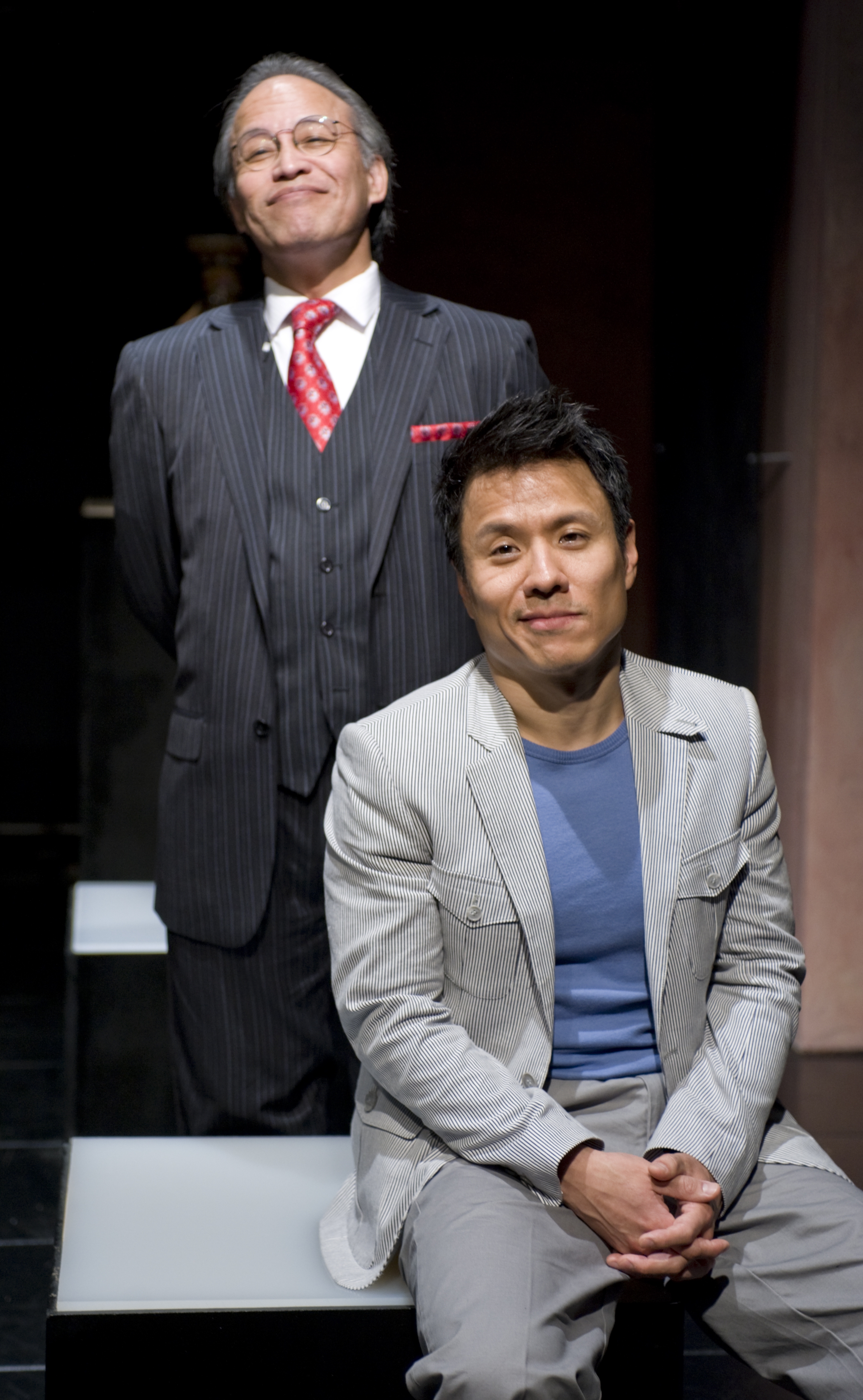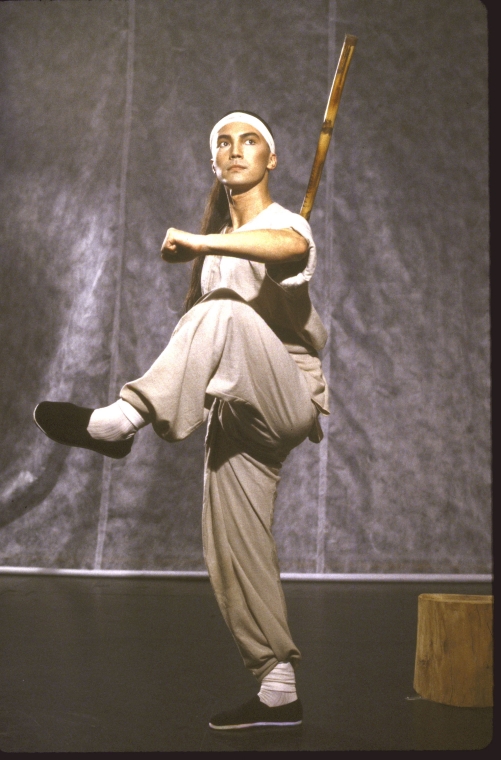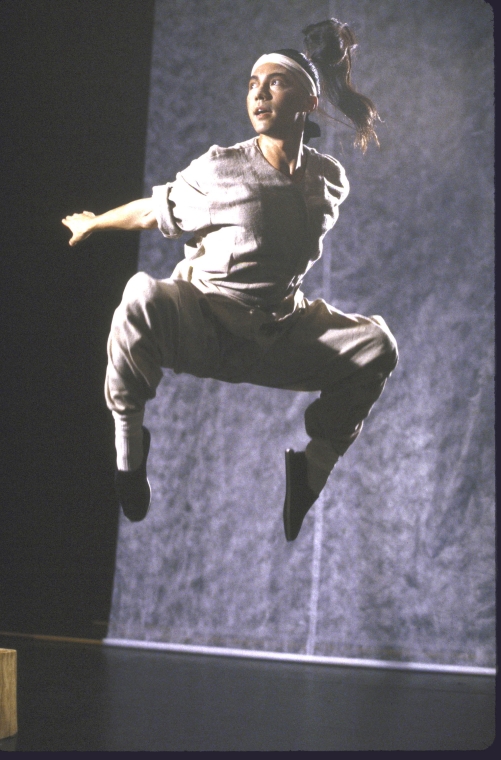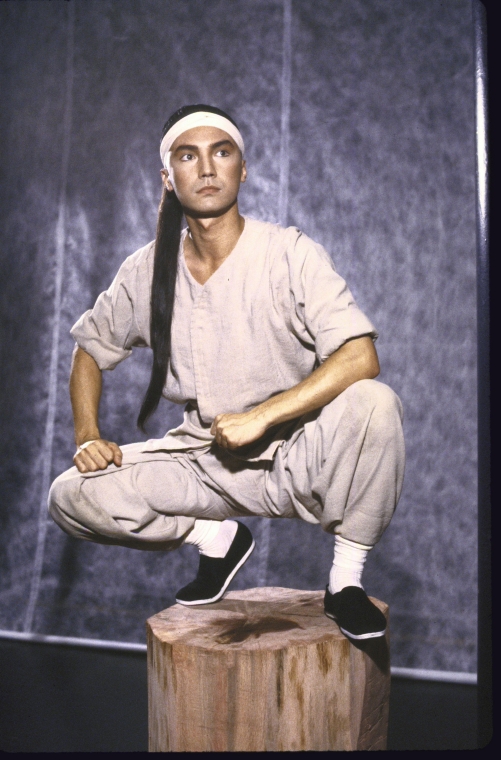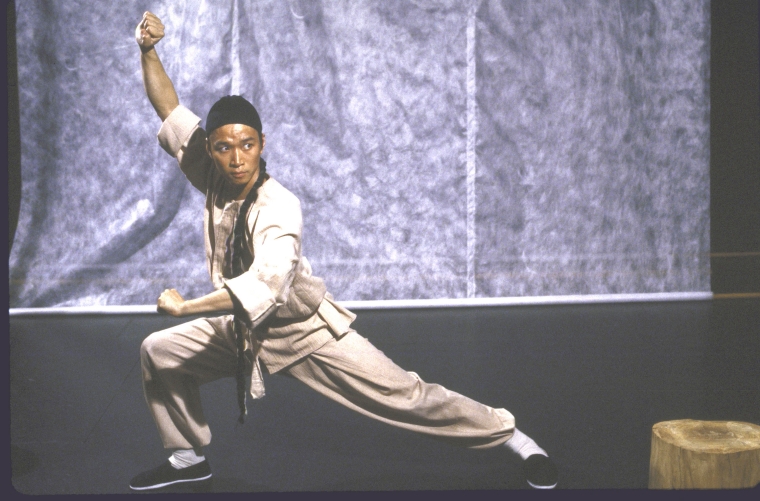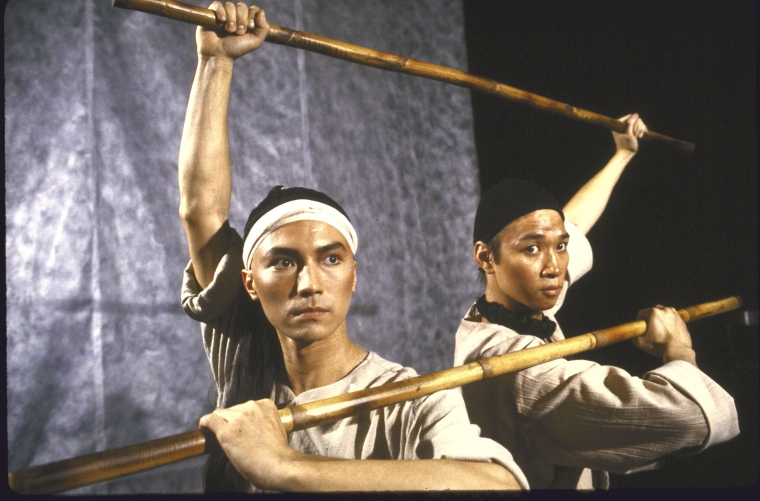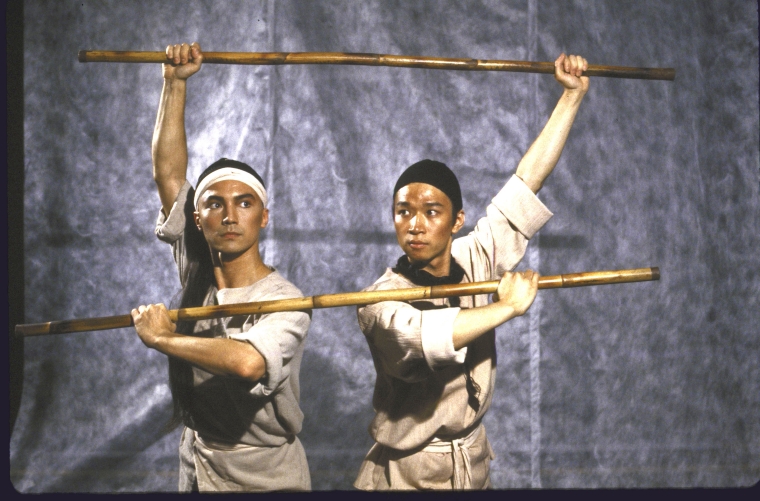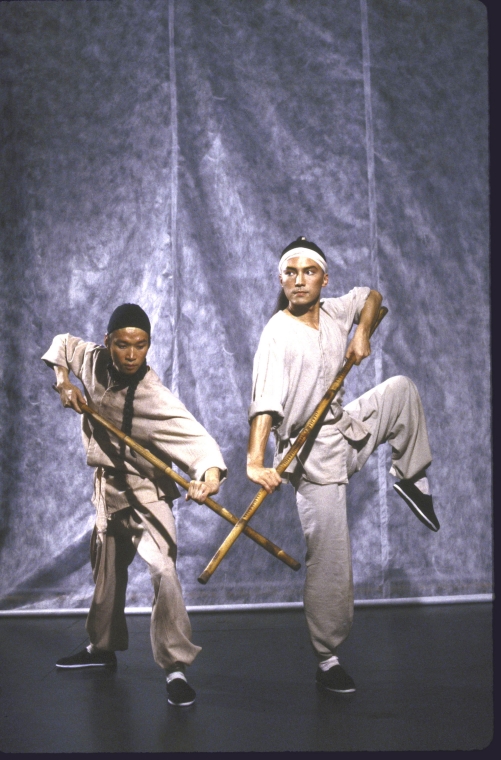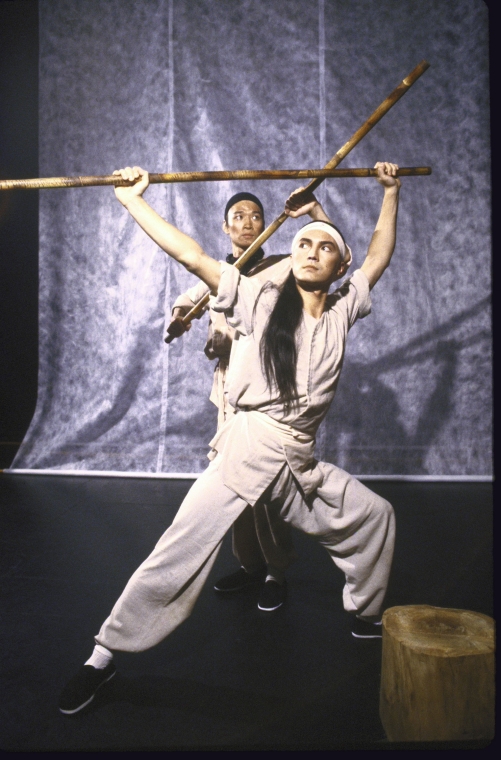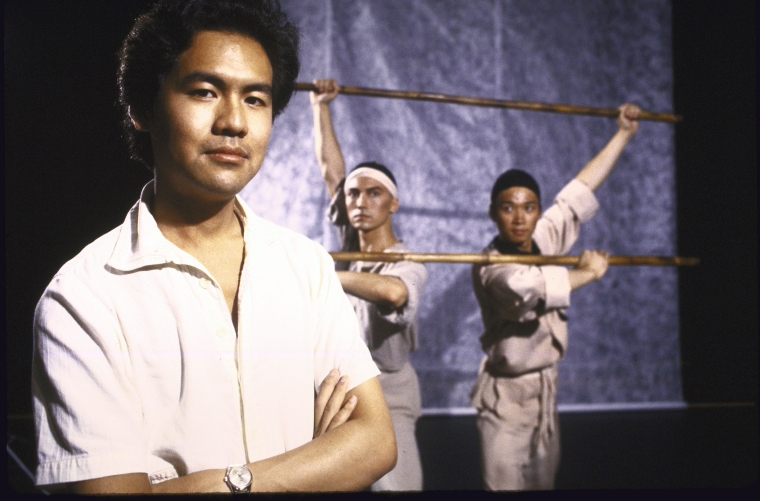Kung Fu is a depiction of international martial arts star Bruce Lee, and his journey from troubled youth to martial arts legend. Kung Fu follows Lee as he struggles to prove himself as a fighter, a husband, a father, and a man. The play blends dance, Chinese opera, martial arts and drama into a bold theatrical experience.
Read Moredavid henry hwang
Chinglish /
Chinglish follows a Midwestern American businessman as he travels to China, desperate to score a lucrative contact for his family's firm, only to discover how much he doesn't understand. Named for the unique and often comical third language that evolves from attempts to translate Chinese signs into English, Chinglish explores the challenges of doing business in a culture whose language—and ways of communicating—are worlds apart from our own.
Read MoreYellow Face /
Yellow Face at the Public Theatre. Photo by Michal Daniel
Inspired by the 1990s Broadway controversy over the “yellow face” casting of Welsh actor Jonathan Pryce as a Eurasian pimp in the musical Miss Saigon, Yellow Face spins a comic fantasy in which Asian American playwright DHH pens a play in protest, then unwittingly casts a white actor as the Asian lead in his own play.
Yellow Face premiered at the Mark Taper Forum in Los Angeles in 2007, directed by Leigh Silverman, then moved to the Public Theater. It won a 2008 Obie Award for Playwriting and was a finalist for the Pulitzer Prize. It premiered in London at the Park Theatre in 2013, in a production directed by Alex Sims, which transferred to the National Theatre in 2014.
Production photos of Yellow Face at the Public Theatre in 2007. Photos by Michal Daniel
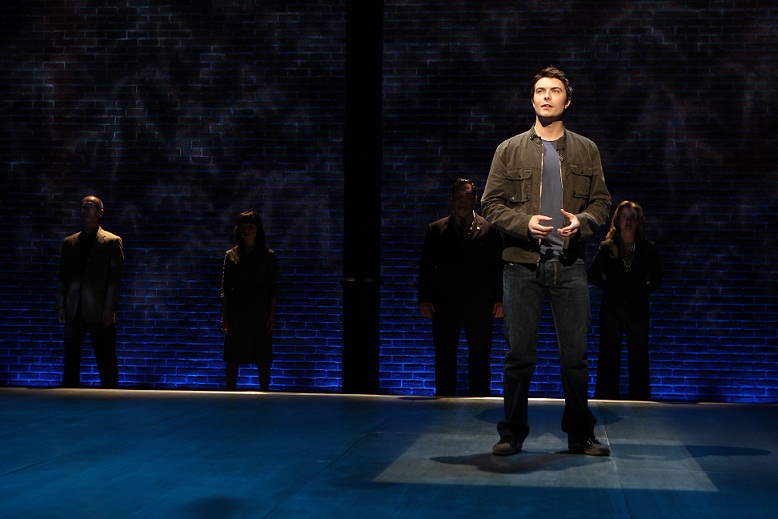
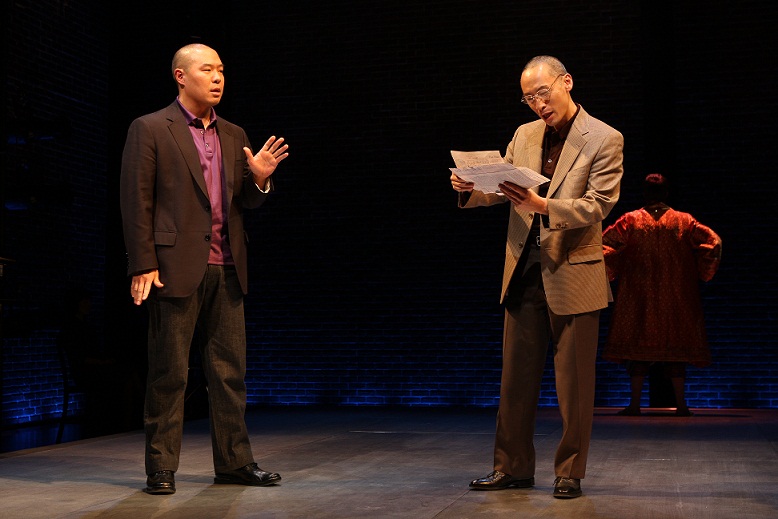
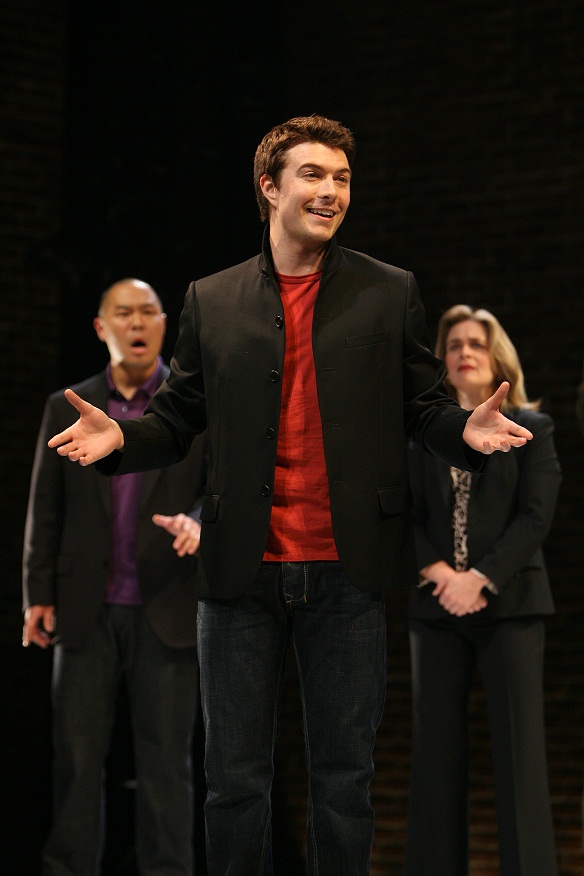
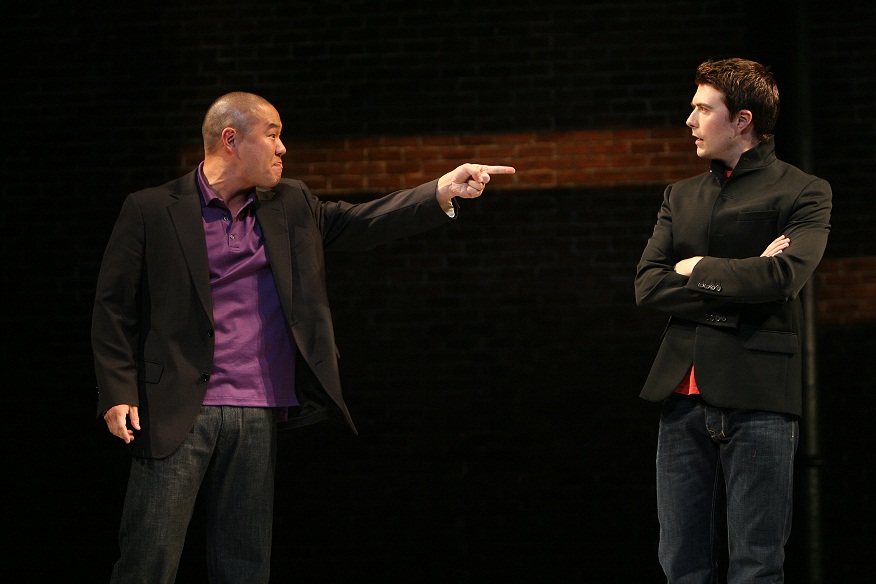
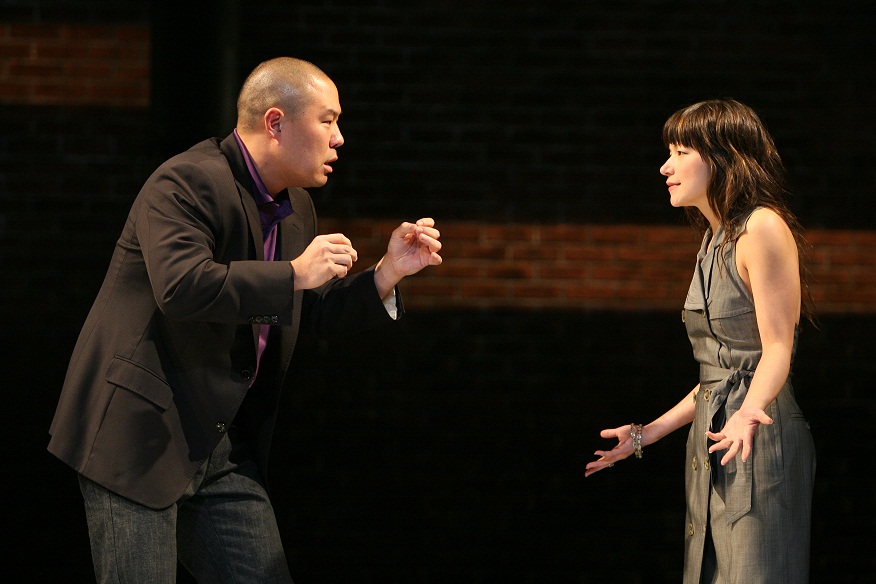
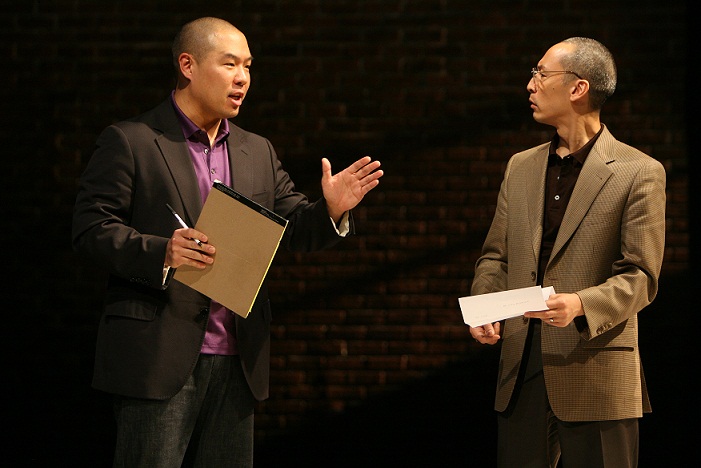
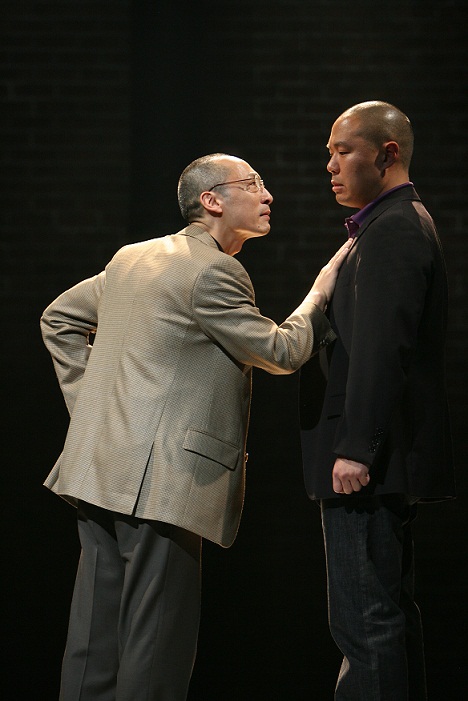
Production photos from Yellow Face at the Silk Road Rising. Photos by Michael Brosilow
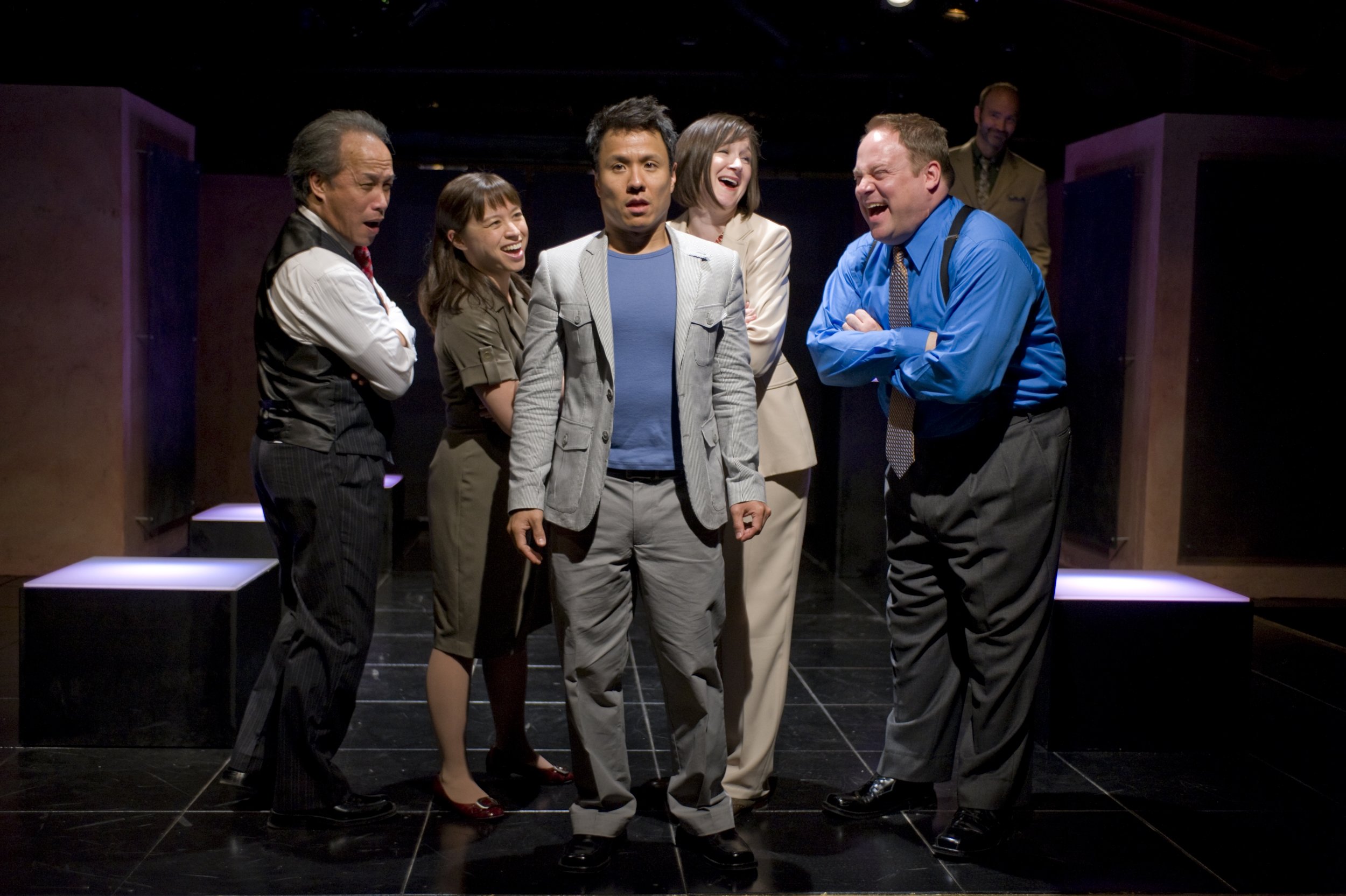
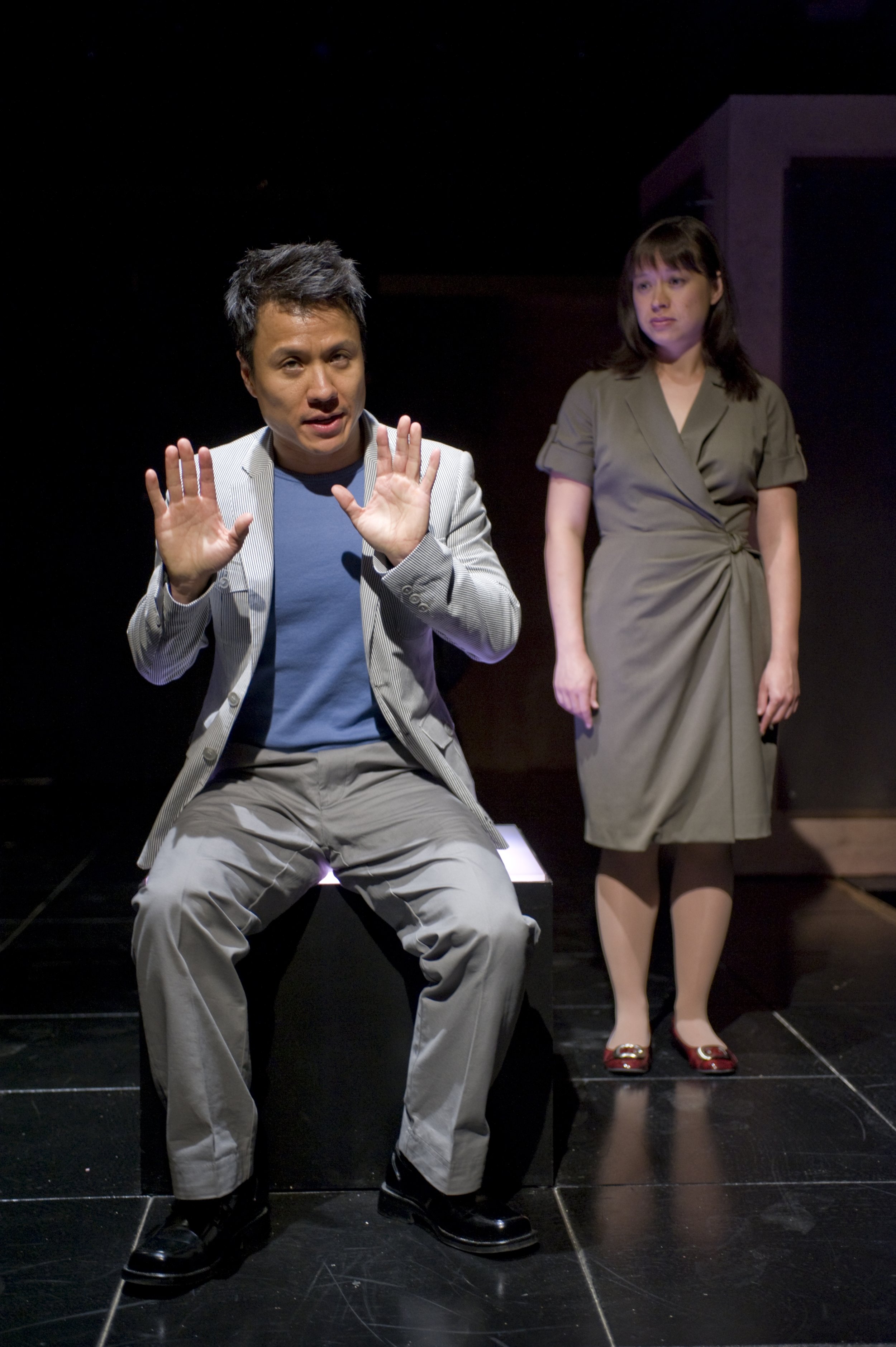
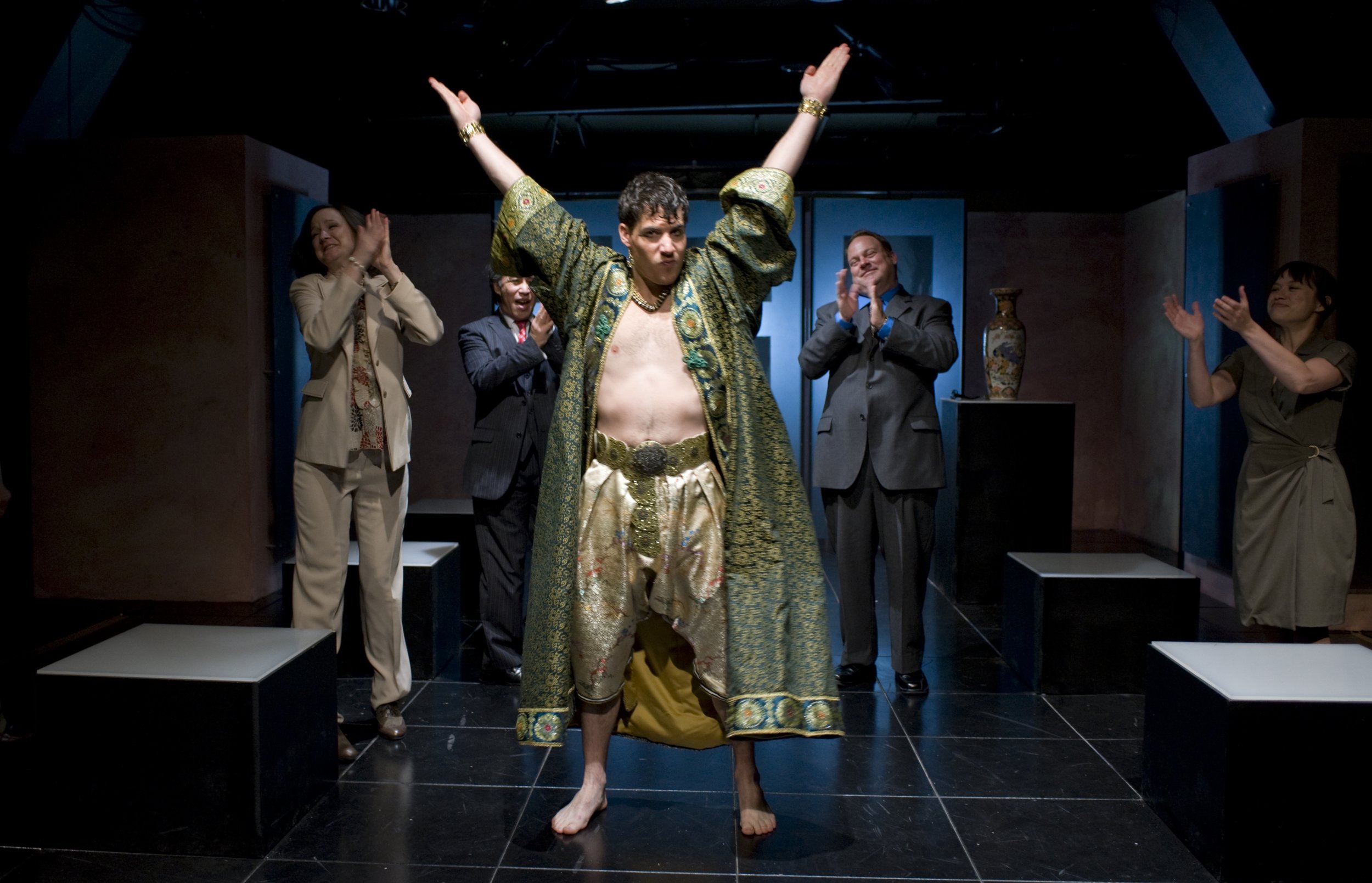
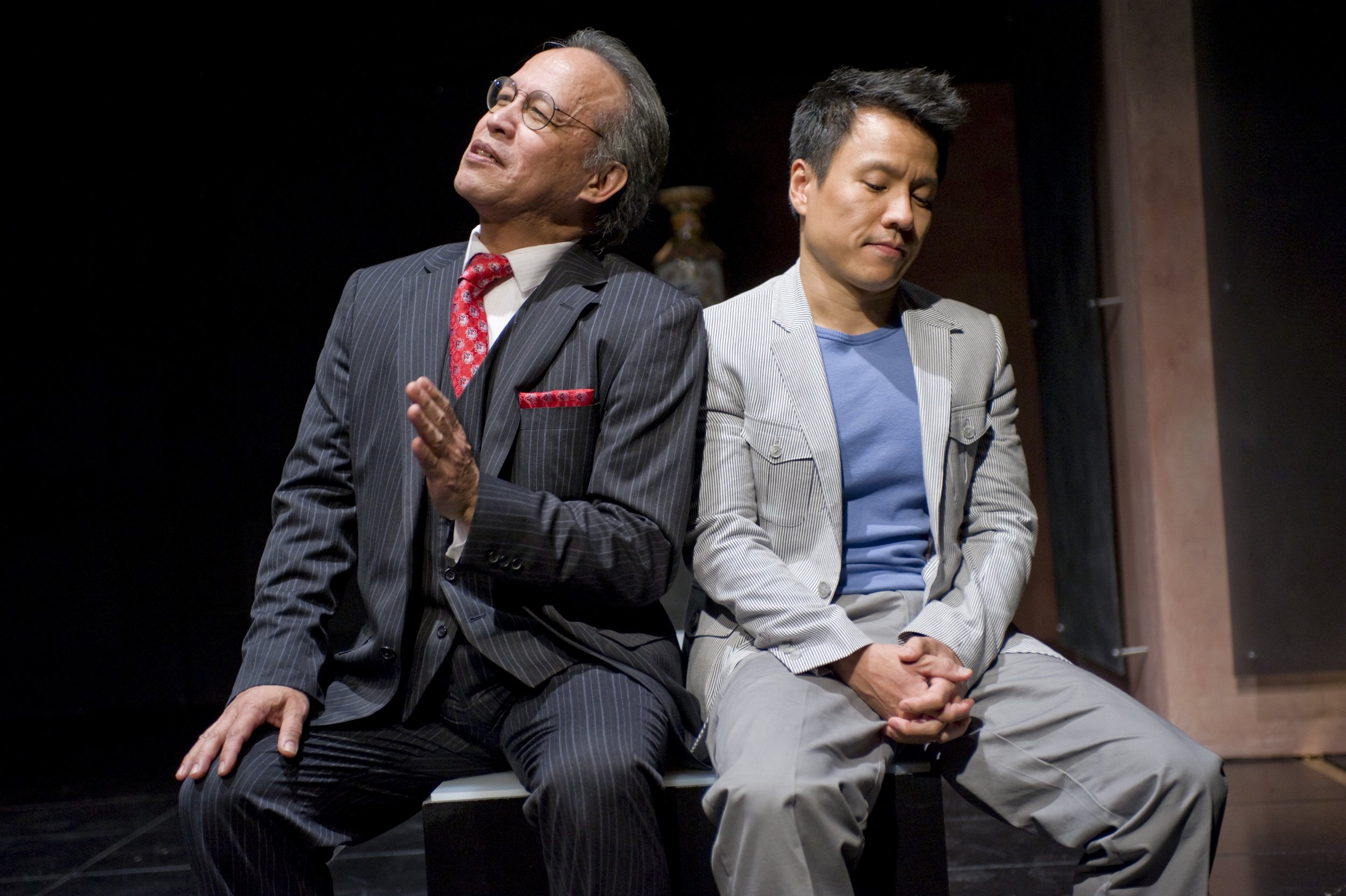
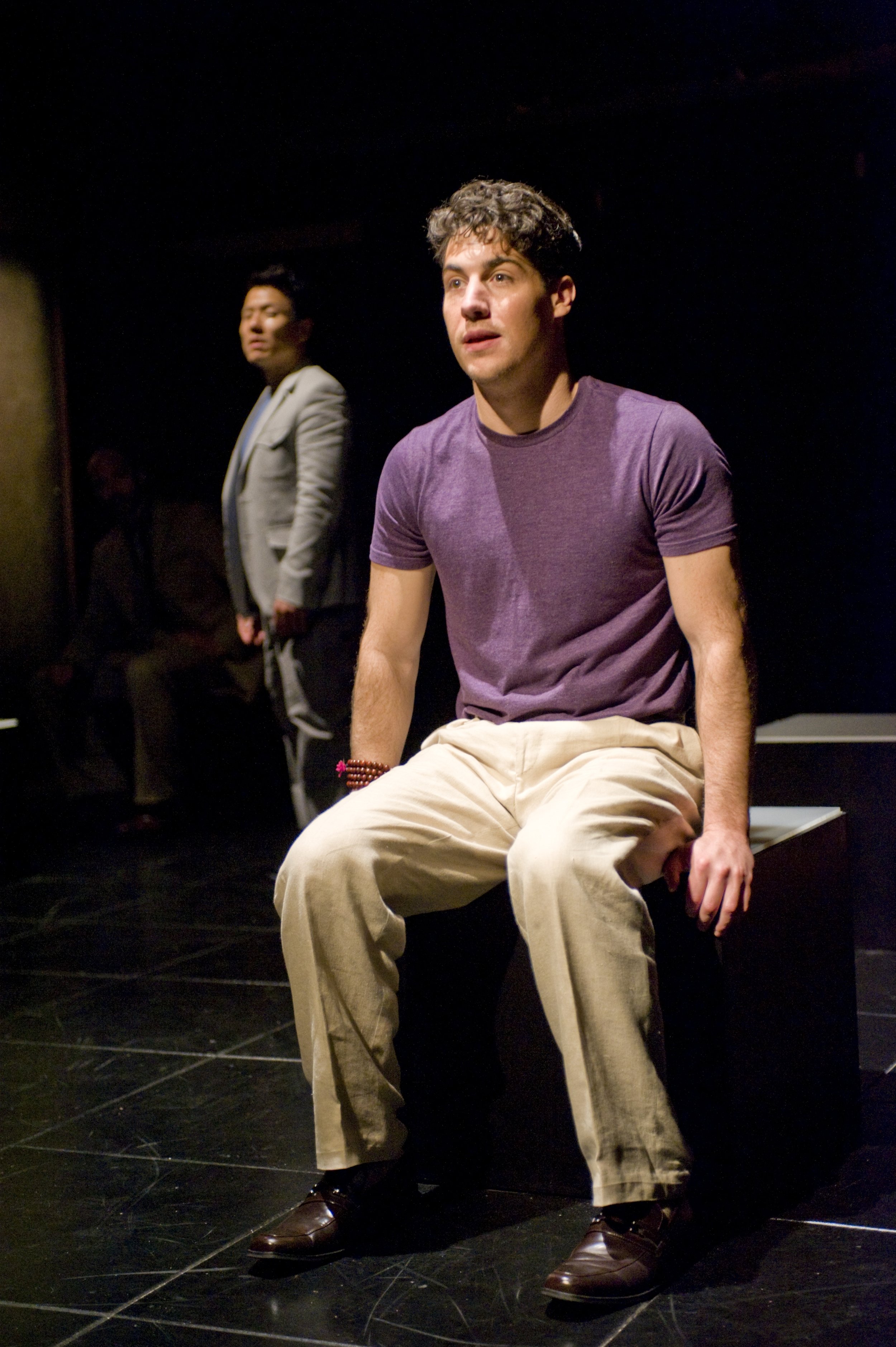
Golden Child /
Jennifer Lim, Annie Q, Julyana Soelistyo, and Leslie Hu. Photo by Richard Termin, Signature Theater Production, 2012
Drawn from stories told to Hwang as a child by his grandmother about their family history, Golden Child tells of a wealthy and polygamous Chinese merchant in 1918, who embraces the new religion of Christianity. In so doing, he sets off a power struggle between his three wives, and forever changes the lives of his succeeding generations.
Golden Child premiered at the Public Theater in 1996, directed by James Lapine, and won a 1997 Obie Award for Playwriting, then moved in 1998 to Broadway, where it received a Tony Nomination for Best Play. It was revived at Signature Theatre in 2012, directed by Leigh Silverman.
Production photos from the Golden Child at Signature Theatre in 2012. Photos by Richard Termin

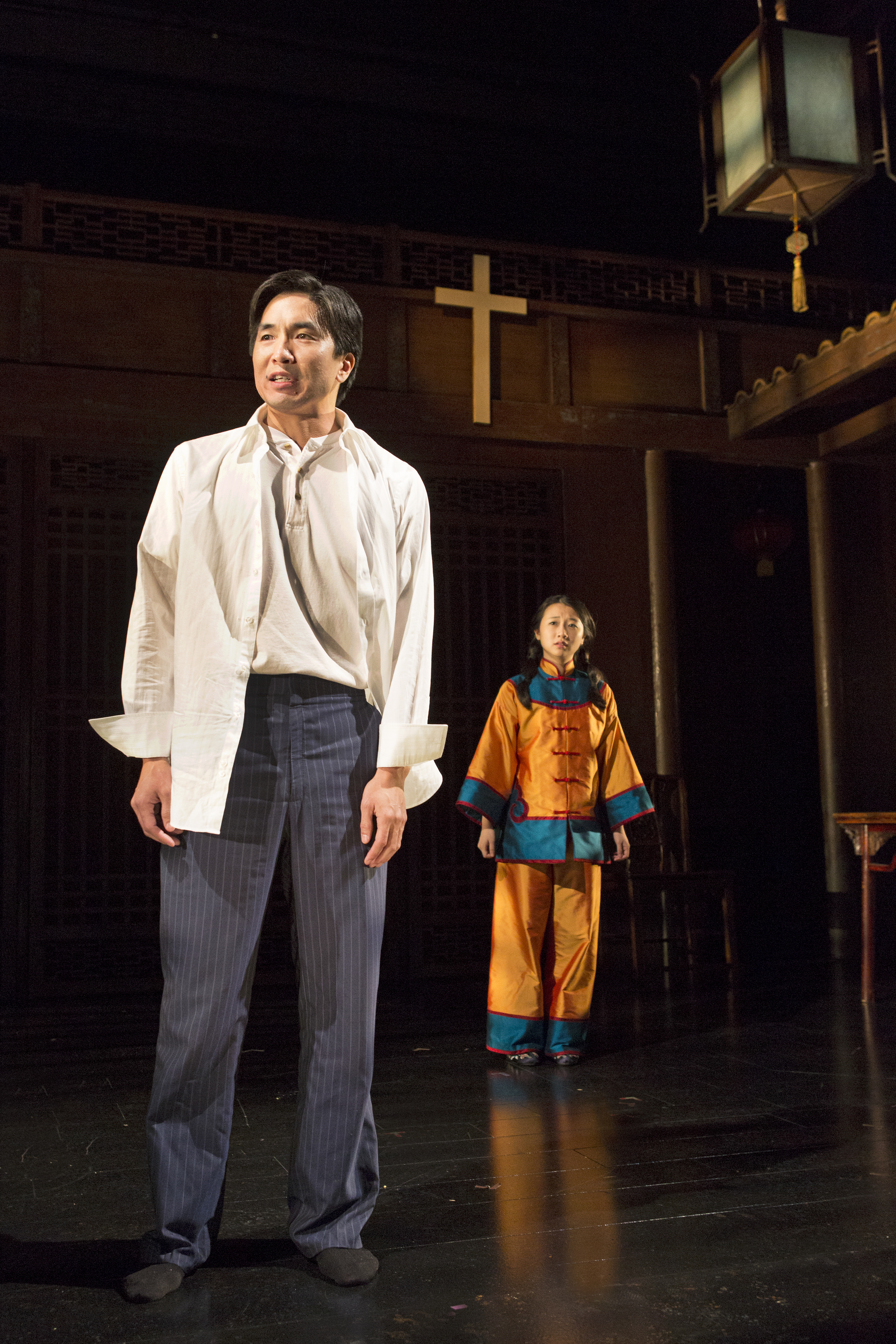
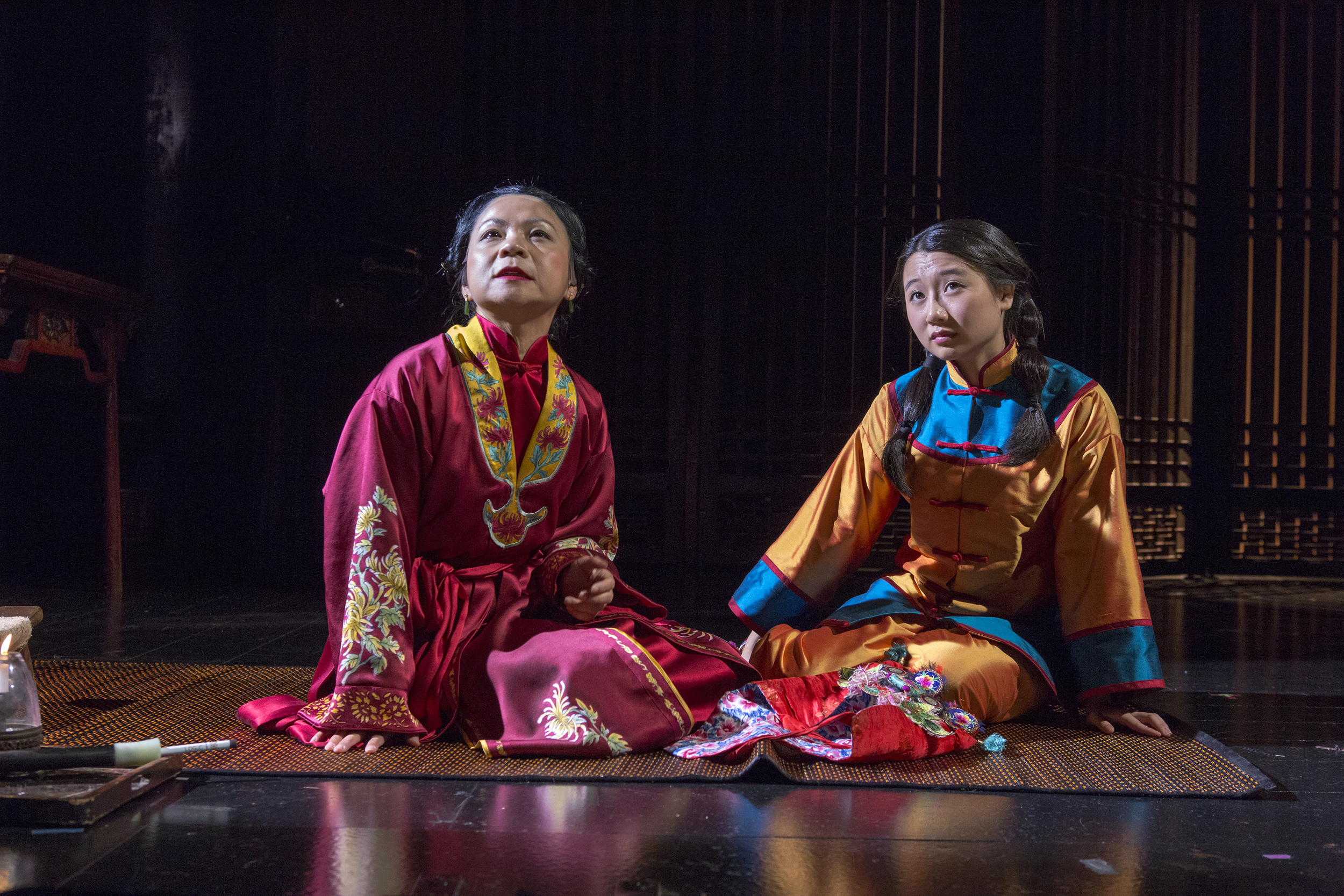
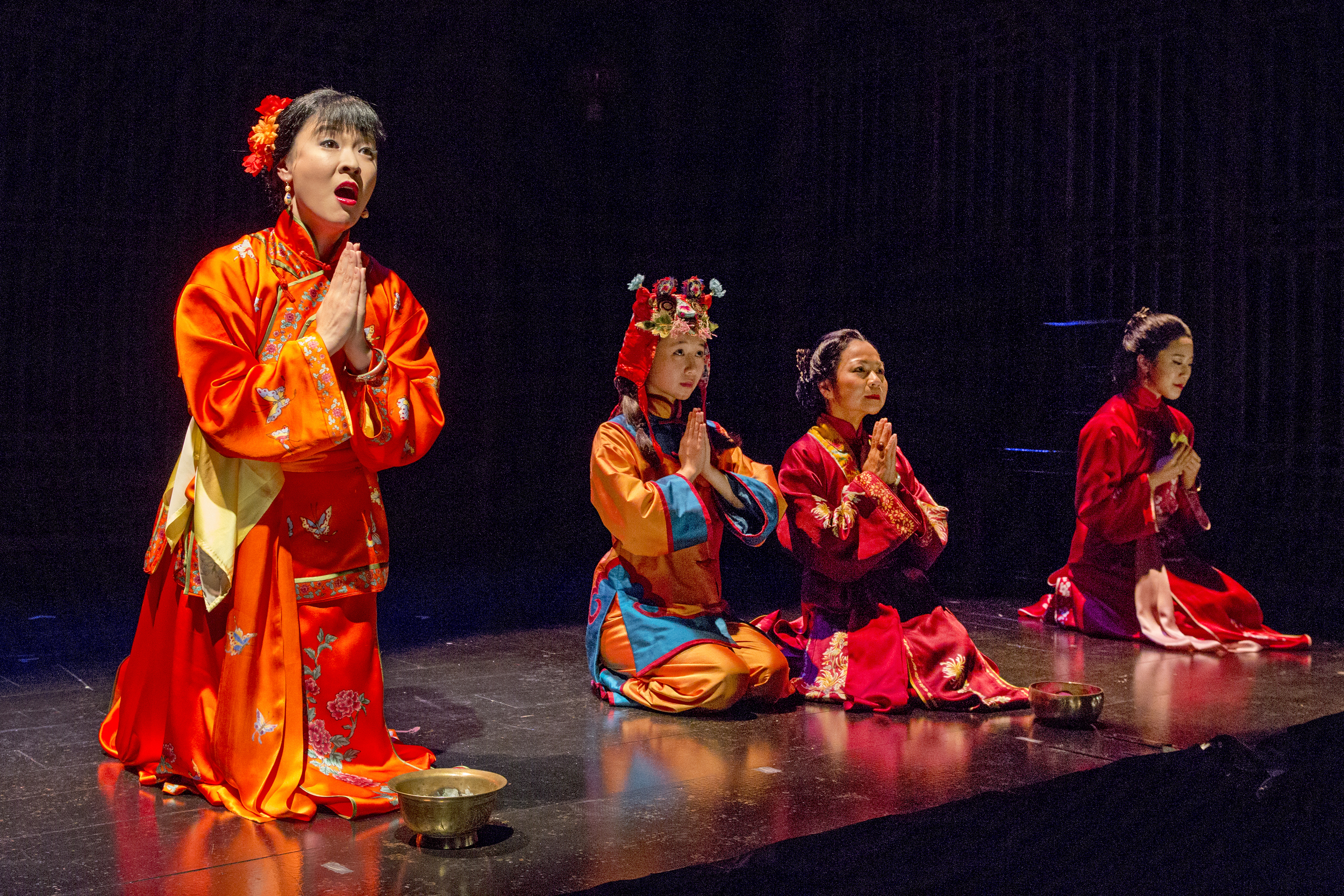
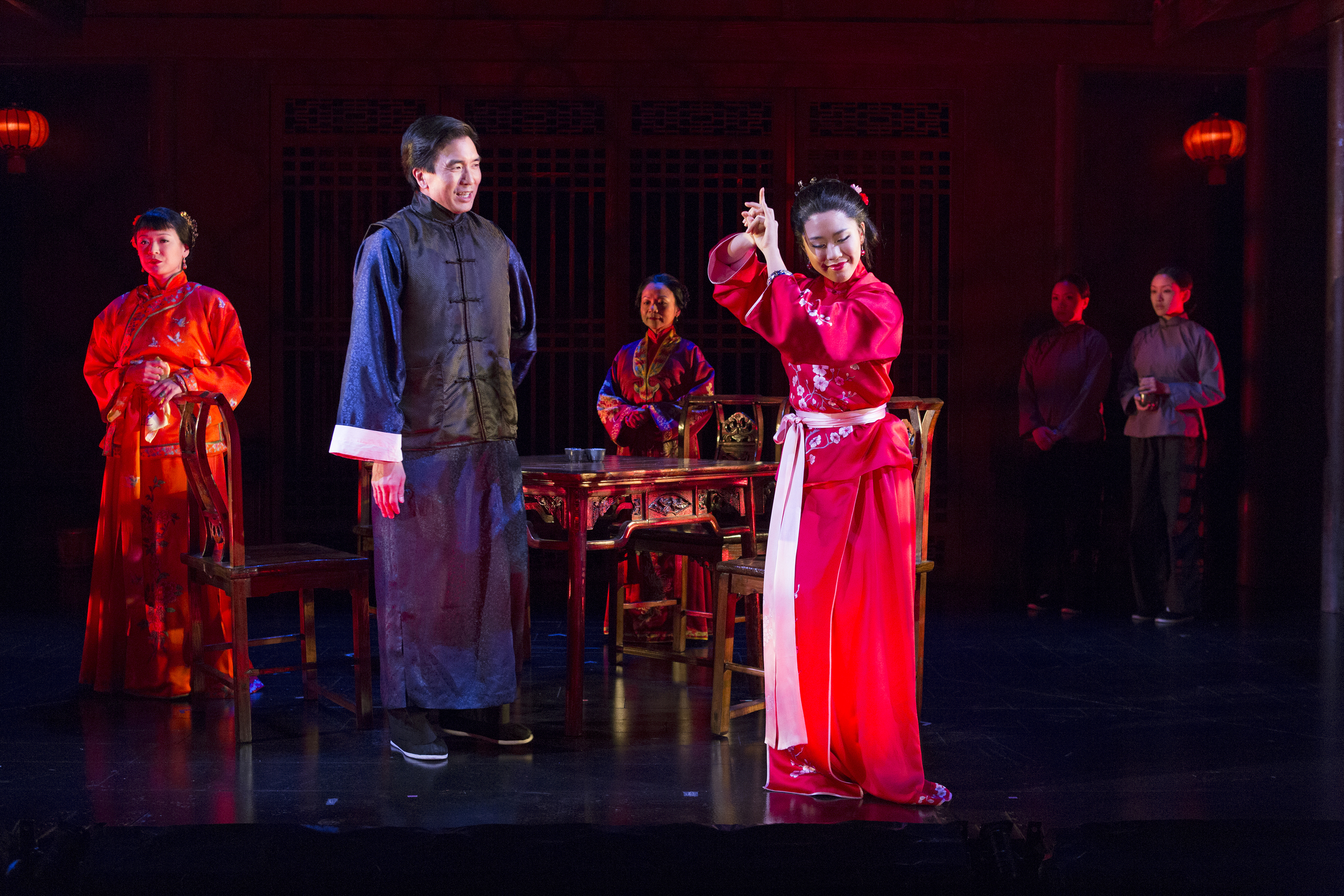
Photos by Michal Daniels, from The Public Theater production in 1996.
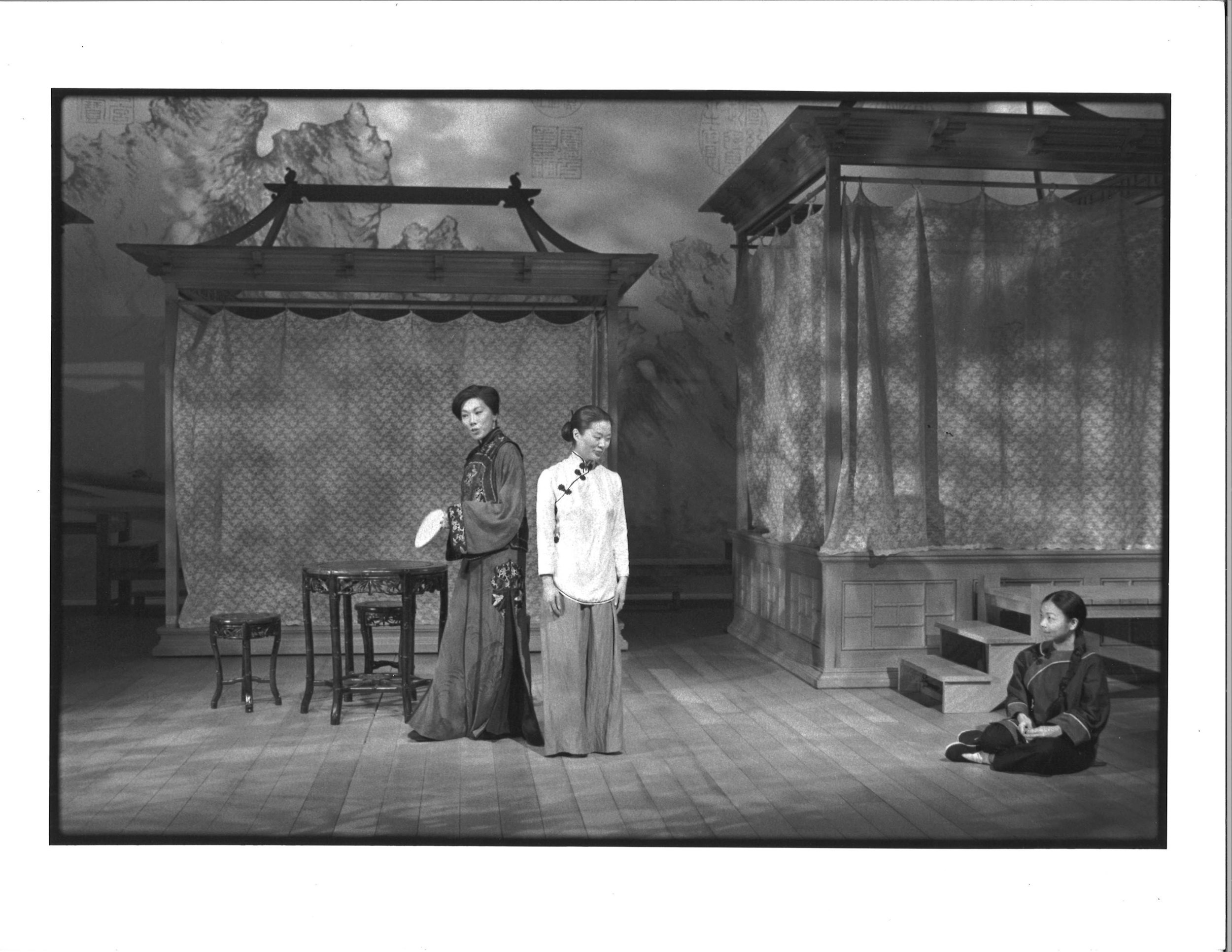
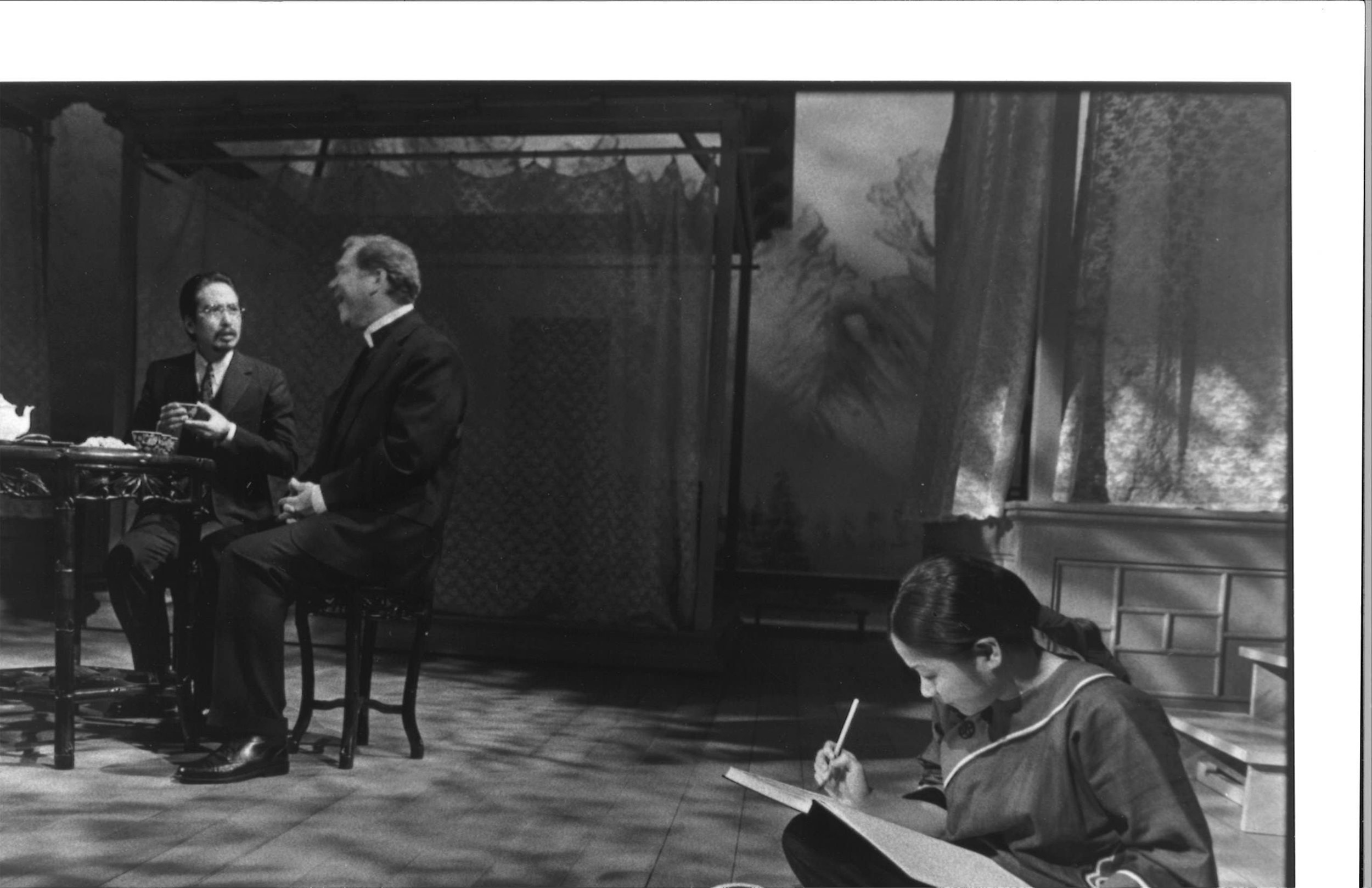
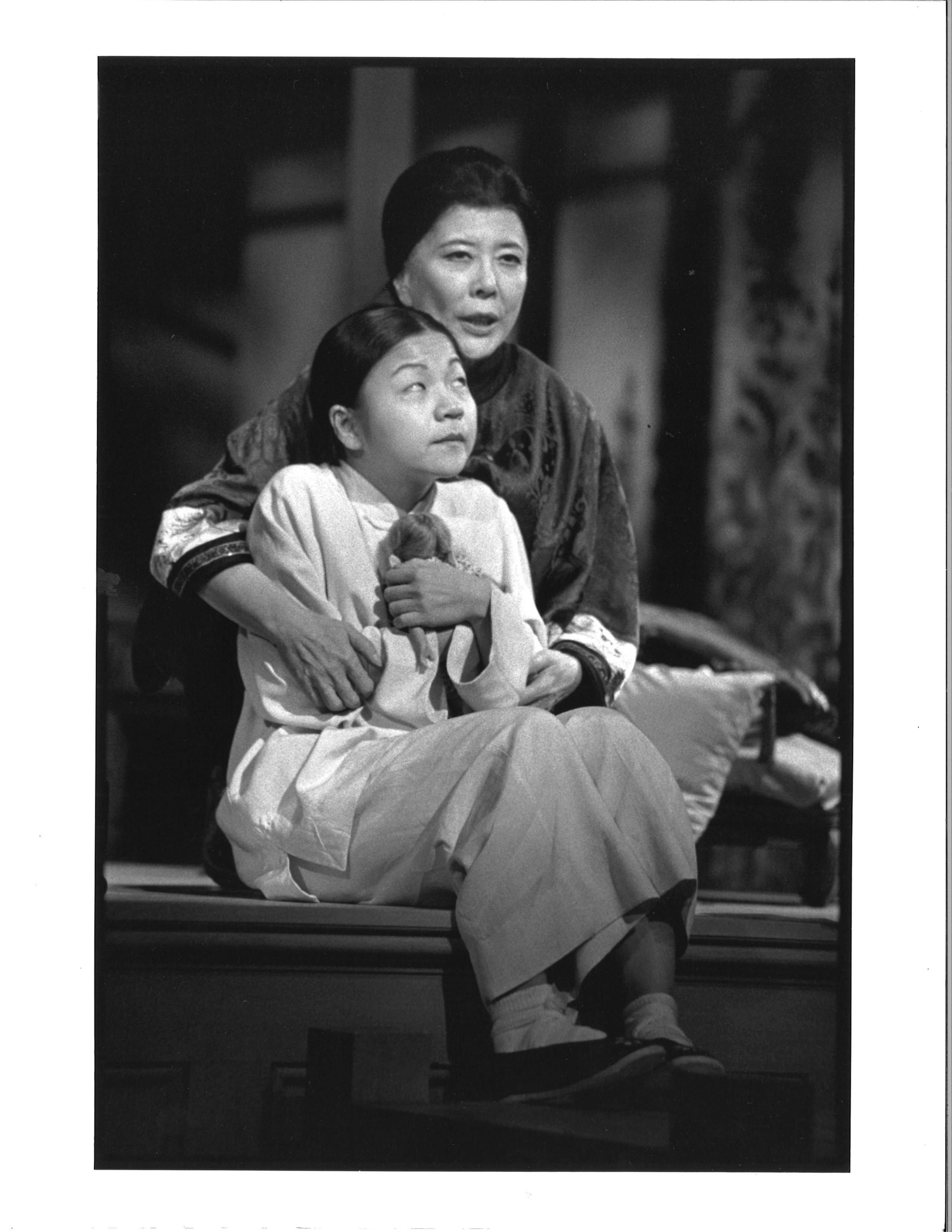
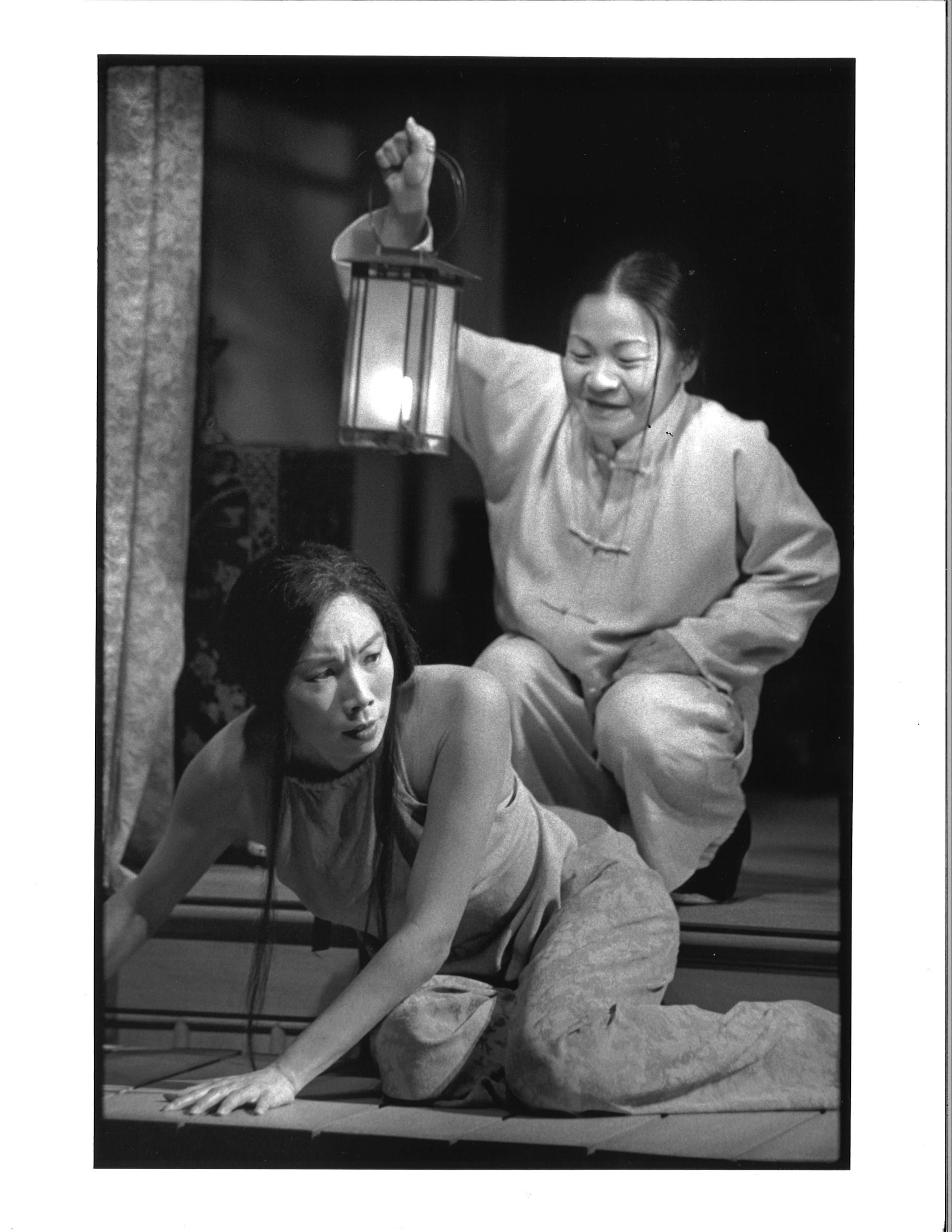
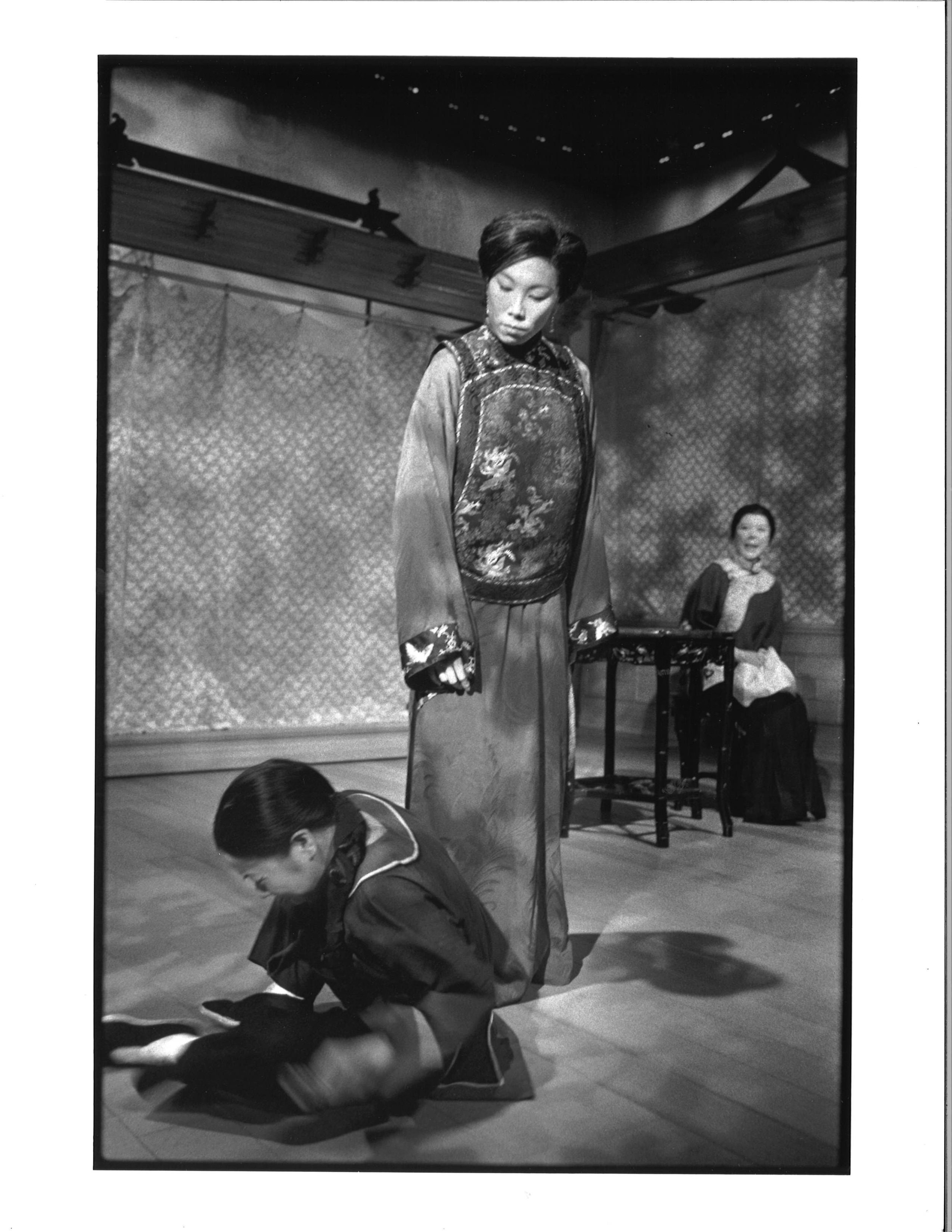
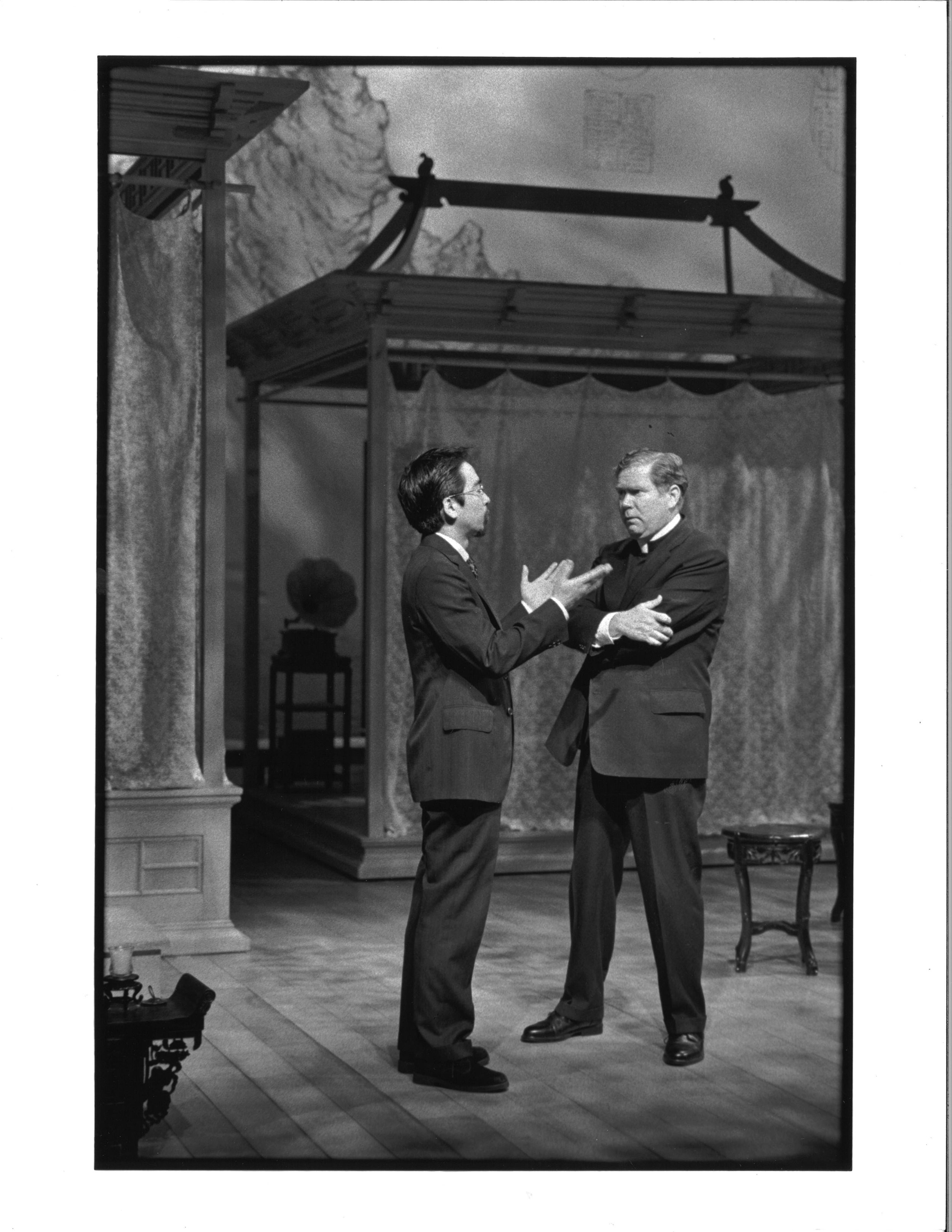
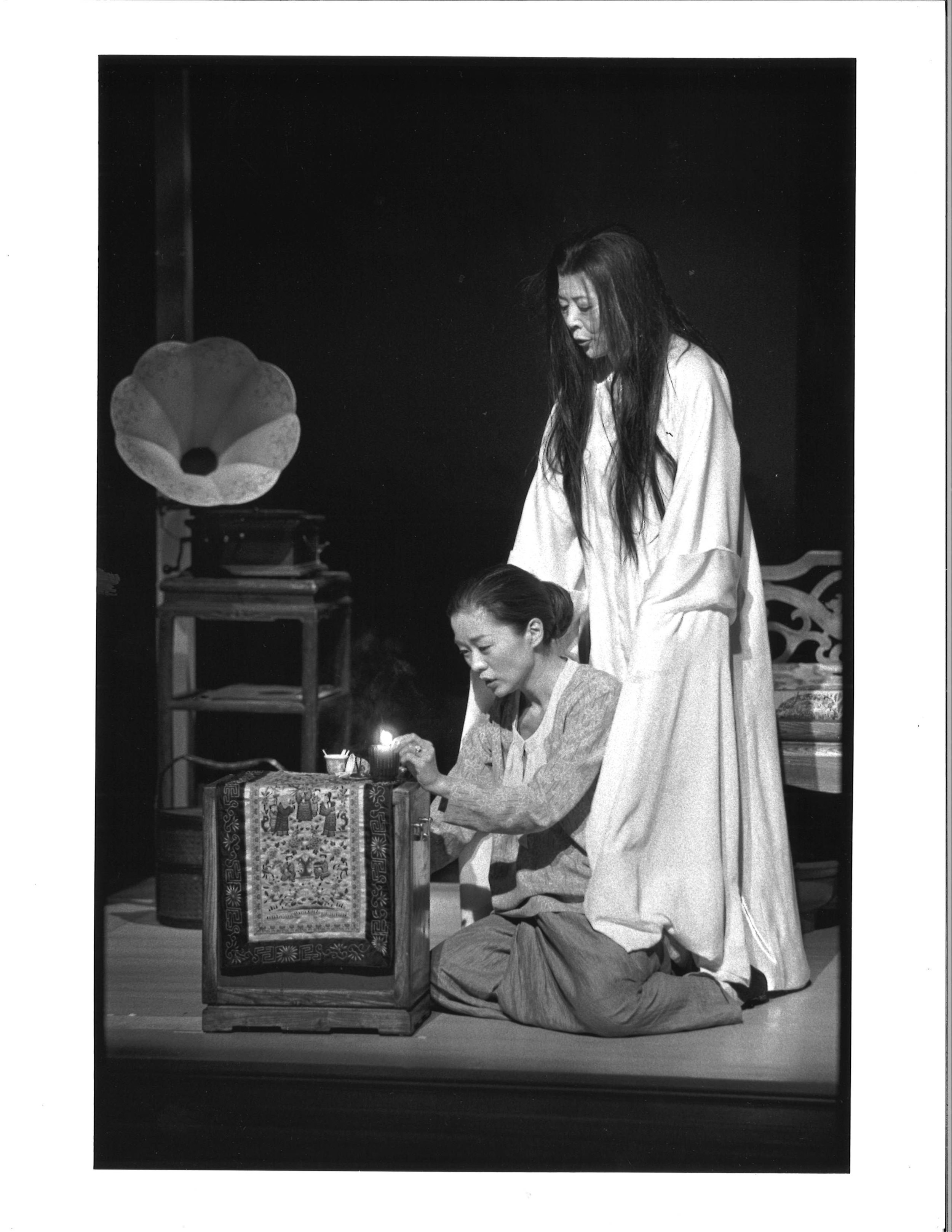
Bondage /
Allyson Harkey and Jacob Yeh in Bondage. Photo by Lucas Zuniga, courtesy`-Washington Post.
Set in a sadomasochism parlor in Los Angeles, Bondage probes the construction of racial stereotypes through the relationship between a dominatrix and her longtime willing submissive, both clad head to toe in black leather to conceal their identities. As the two role-play their way through a series of racially-charged sexual games, they gradually realize that the old roles no longer satisfy them as before.
Bondage premiered at Actors Theatre of Louisville in 1992, directed by Oskar Eustis.
M. Butterfly /
M. Butterfly is inspired by a true story of a French diplomat who carried on a twenty-year affair with a Chinese actor and opera singer, without realizing the true gender of his lover. French diplomat Bernard Boursicot and Shi Pei Pu, a Peking opera singer lived together for decades before Shi Pei Pu was discovered to be a Chinese spy and Boursicot was charged with treason.
Read MoreRich Relations /
Johann Carlo. Rich Relations at Second Stage, 1986. Photo by Stephanie Saia
Keith is a prep school debate teacher on the run with Jill, his student and underage girlfriend. They arrive at the Los Angeles mansion of his father Hinson, an amusingly hopeless technophile who left the ministry to become a wealthy real estate baron. Full of wit, magic, and ruined household appliances, Rich Relations explores the ties between wealth and love, modernity and eternity, sacrifice and resurrection.
Rich Relations premiered at Second Stage in 1986, directed by Harry Kondoleon.
Joe Silver. Rich Relations at Second Stage, 1986. Photo by Stephanie Saia
The House of Sleeping Beauties /
Natsuko Ohama, Ching Valdes-Aran, John Lone, Elizabeth Sung, Victor Wong, and DHH. Photo by Martha Swope.
The House of Sleeping Beauties is an adaptation of the novella by Nobel Prize winning author Yasunari Kawabata. An elderly man visits a unique brothel filled with sleeping young women. The customers are permitted only to sleep, but not have sex, with the girls, as they fantasize about what it was like to be young.
The House of Sleeping Beauties premiered at the Public Theater in 1983, directed by John Lone with Lenore Kletter.
Purchase The House of Sleeping Beauties
The Sound of a Voice /
Masanari Kawahara and Maria Chen in Mu Performing Arts, 1996
Inspired by Japanese ghost stories, The Sound of a Voice tells of a lone samurai warrior who goes into the woods to kill a woman rumored to be a witch, but ends up falling in love with her instead.
The Sound of a Voice premiered at the Public Theater in 1983, directed by John Lone with Lenore Kletter.
Purchase The Sound of a Voice
Family Devotions /
Actors (L-R) Victor Wong, Jim Ishida, Michael Paul Chan, Helen Funai, Tina Chen, June Kim, Jodi Long, Lauren Tom and Marc Hayashi in a scene from the New York Shakespeare Festival's production of Family Devotions. Photo by Martha Swope, Courtesy NYPL.
Family Devotions depicts a clash of West and East among three generations of an Americanized Chinese family in a Los Angeles suburb. Ama and Popo, two elderly and devoutly Christian Chinese sisters, live with their Americanized children in Bel Air. Their grandchildren Jenny and Chester seek to escape superficial world of their parents. The whole family eagerly awaits a visit from Di-Gou, the brother whom the sisters have not seen in over thirty years. When he arrives, it is clear he is not the man his sisters remember.
Family Devotions premiered at the Public Theater in 1981, directed by Robert Alan Ackerman. It received a 1982 Drama Desk Nomination for Best New Play.
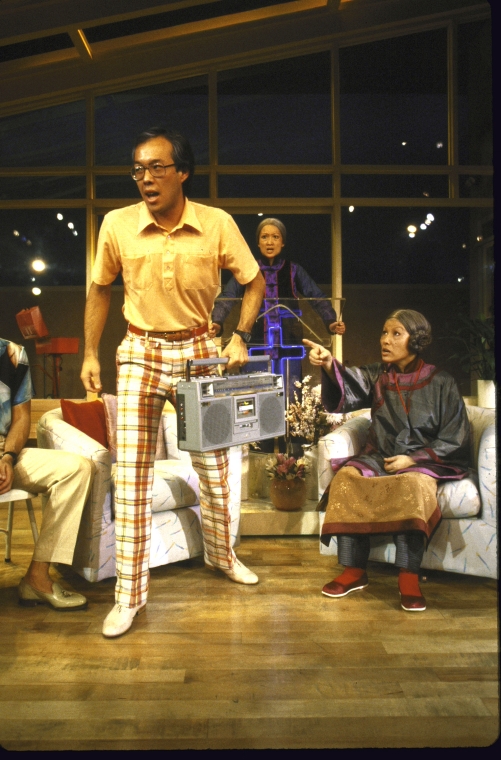
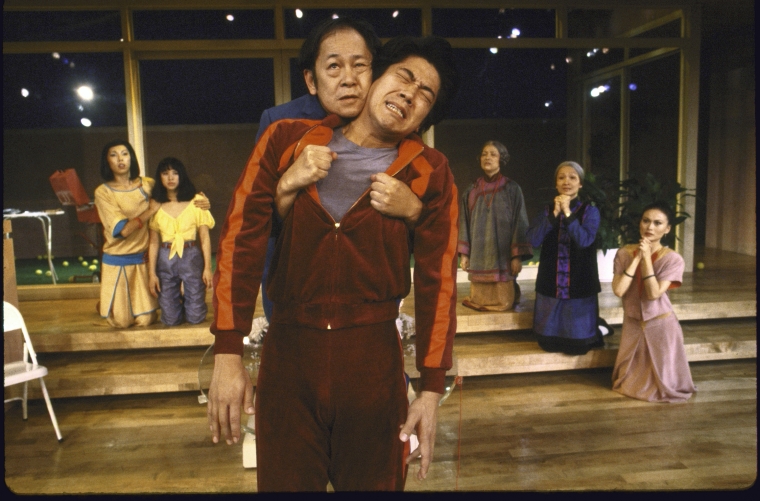
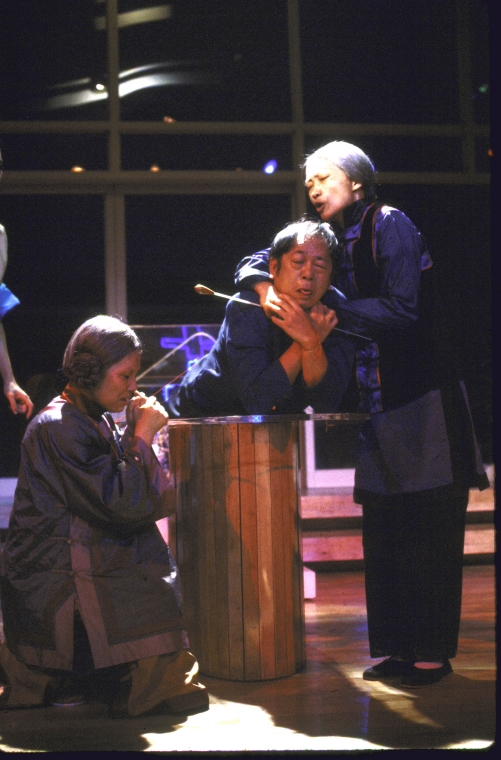
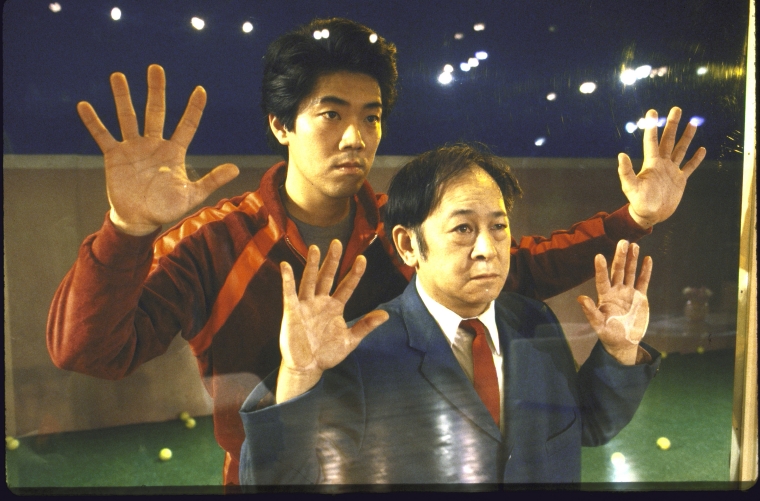
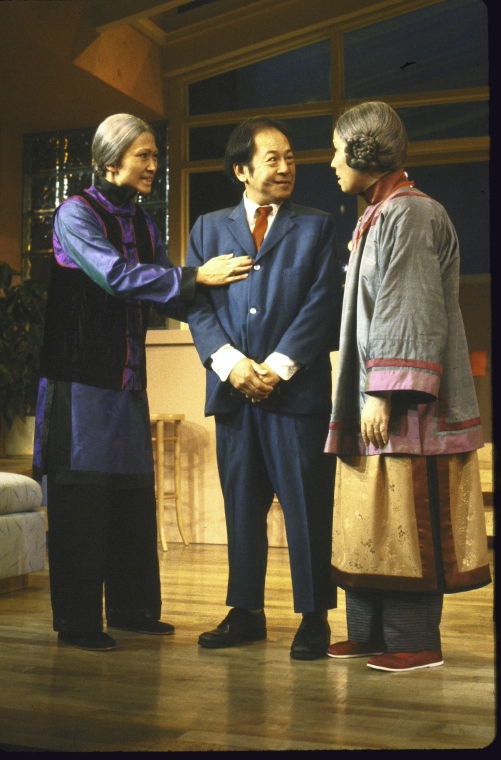
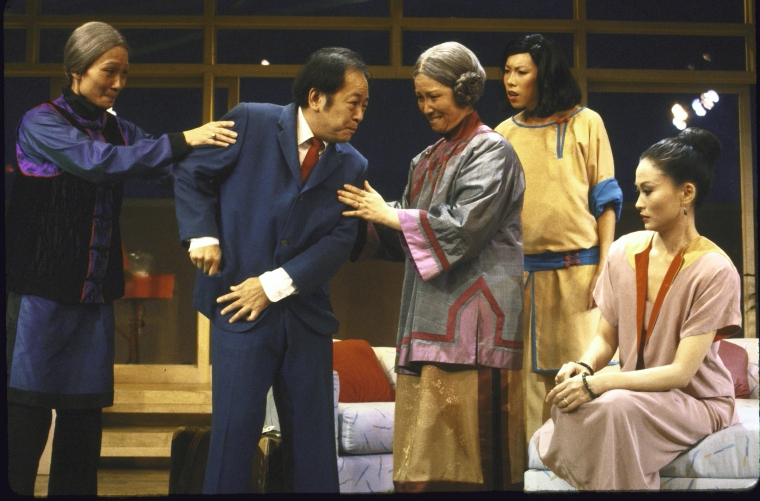
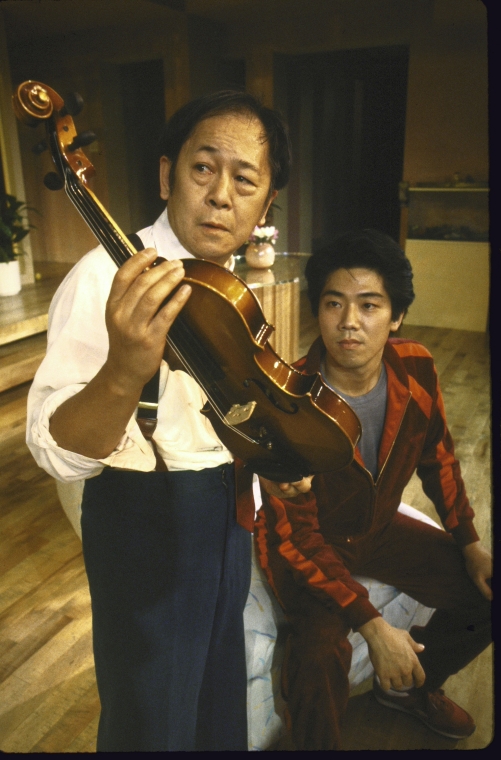
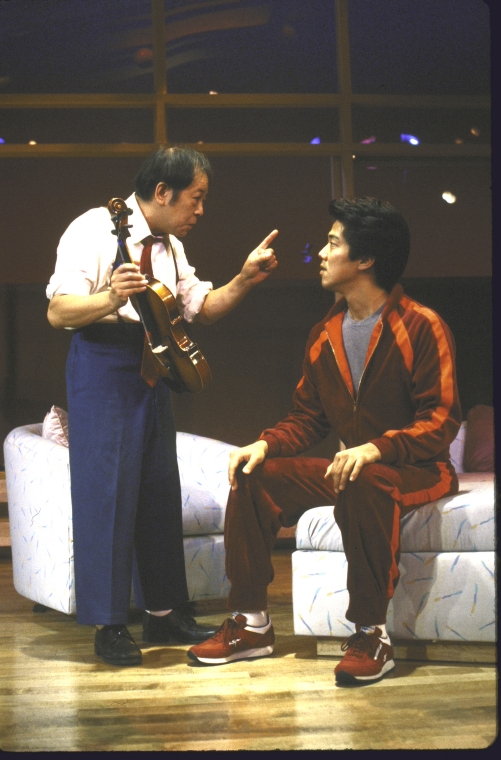
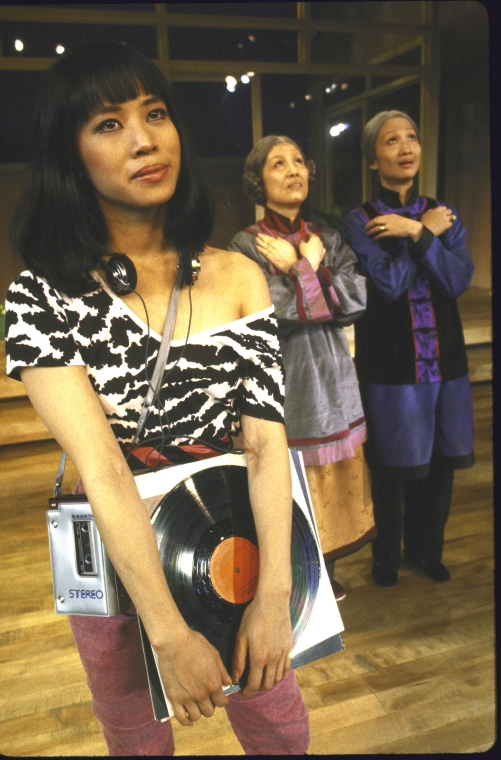
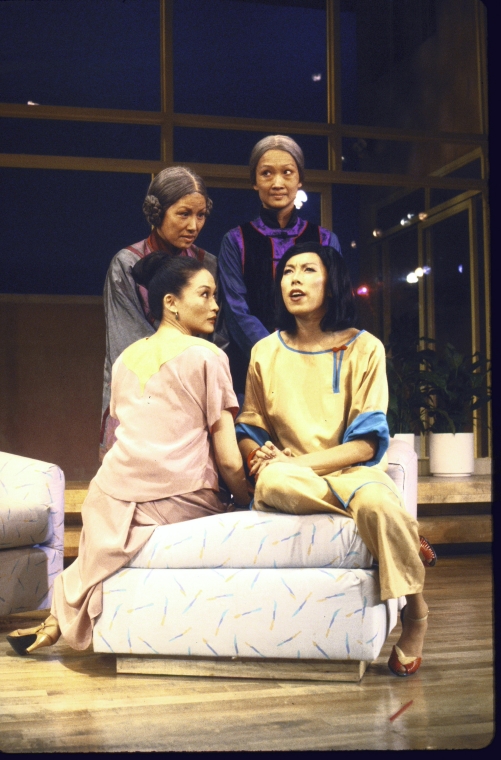
The Dance and the Railroad /
William Yuekun Wu and Ruy Iskandar. Photo by Joan Marcus for Signature Theatre, 2013
Set against the backdrop of the Chinese American railroad workers’ strike of 1867, The Dance and the Railroad rejects the stereotype of submissive immigrant laborers, and depicts assertive men who demanded their rights despite great personal risk. The play compares the optimistic and idealistic Ma to the pragmatic and independent Lone, and juxtaposes the hard labor of working on the railroad with the dream to practice traditional Chinese Opera.
The Dance and the Railroad premiered at the New Federal Theatre in 1981, directed by John Lone, before moving to the Public Theater, and received a 1982 Drama Desk Nomination for Best New Play. It was revived at Signature Theatre in 2013, directed by May Adrales, in a production which received its Chinese premiere at the Wuzhen Festival later that year.
Purchase The Dance and the Railroad
Photos from the 2013 revival at Signature Theatre. Photos by Joan Marcus.
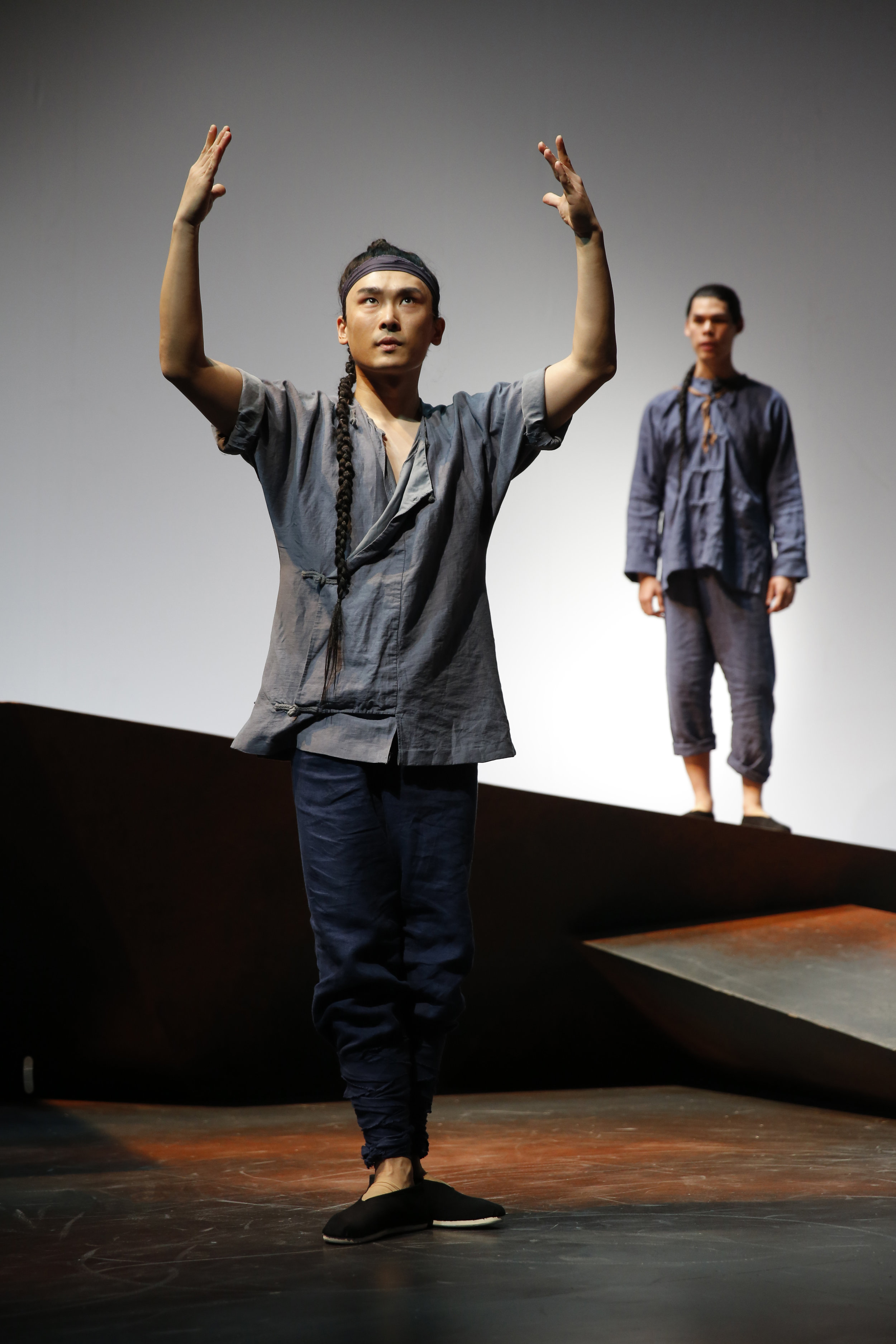
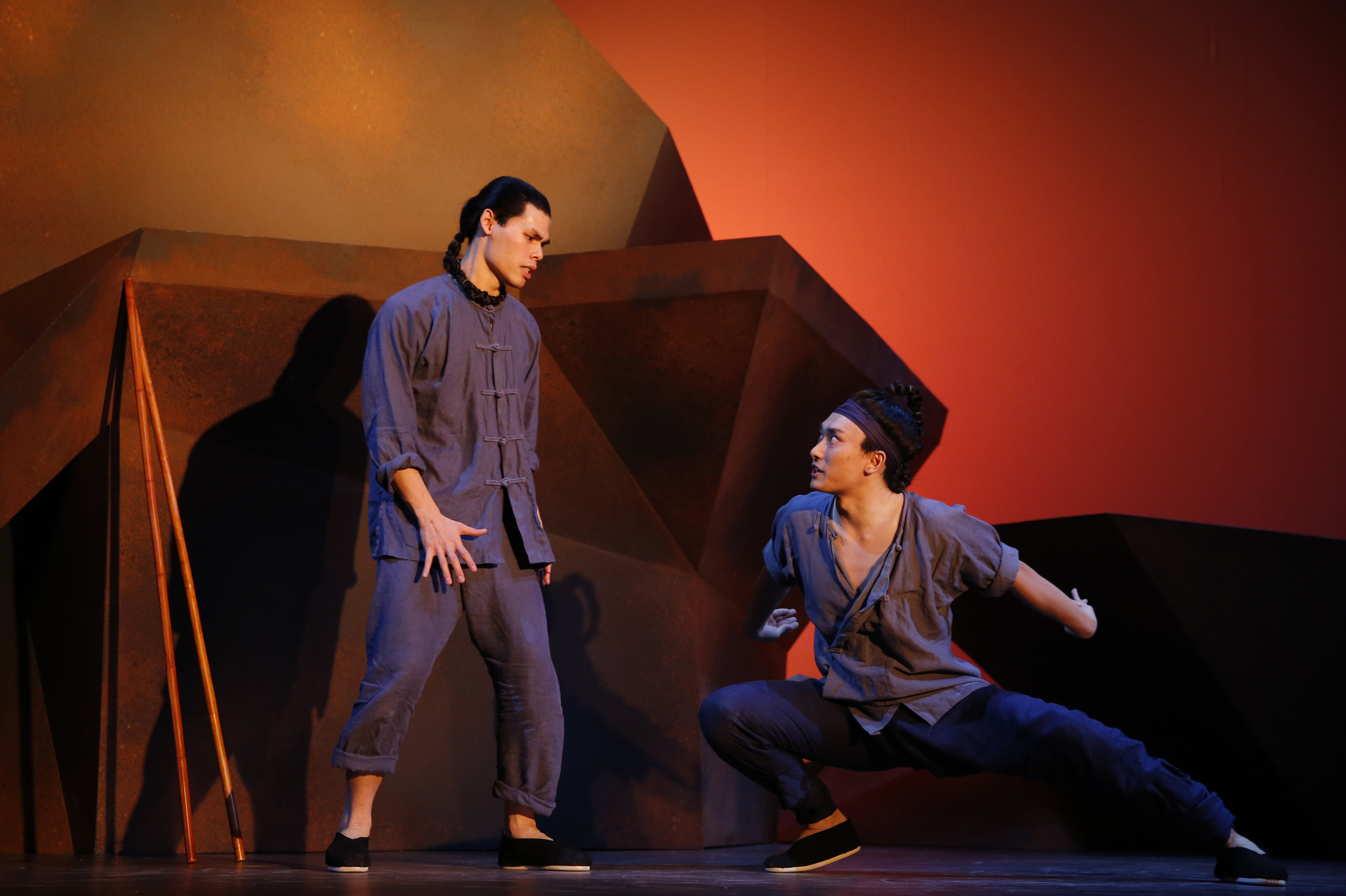
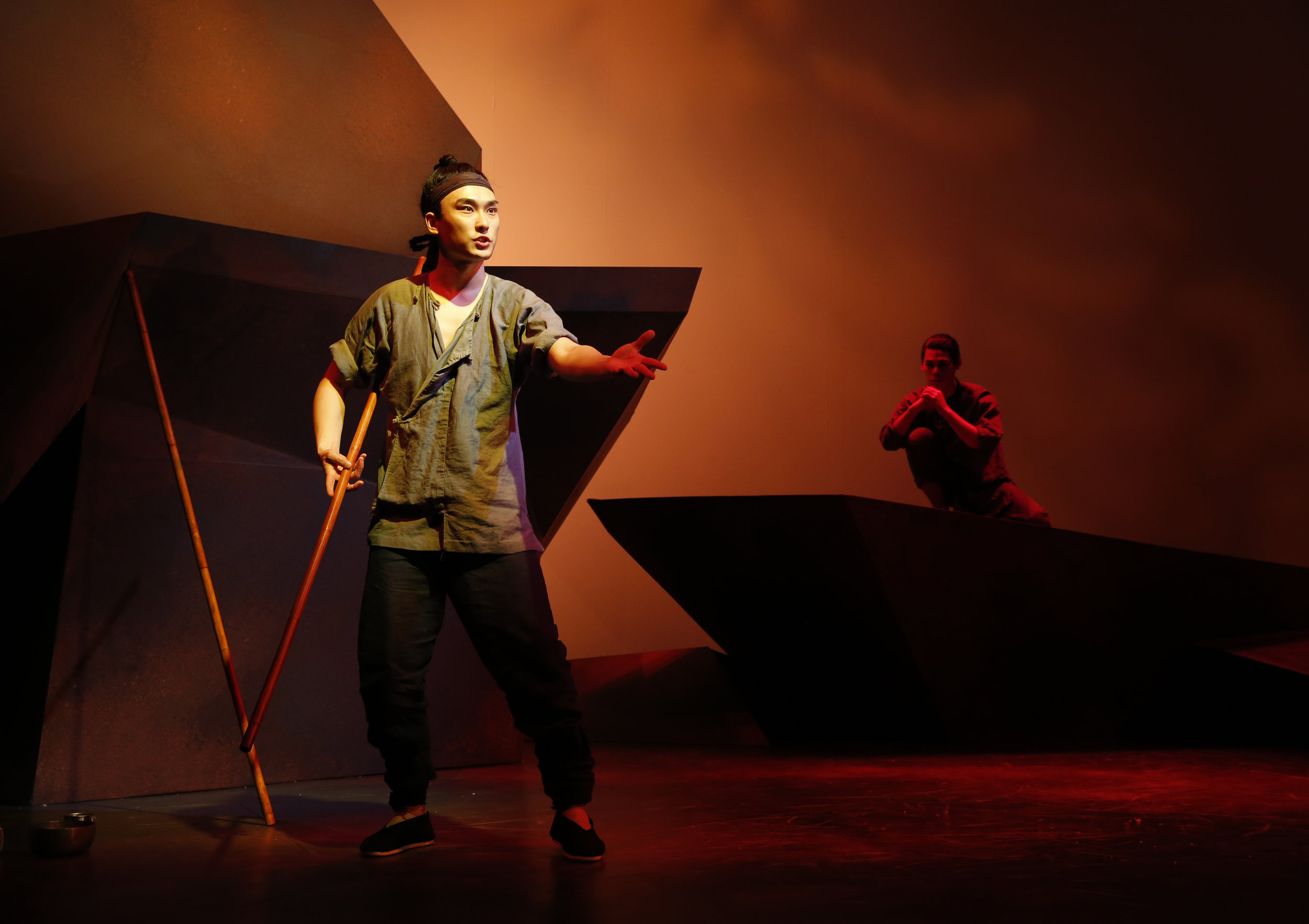
Photos from the 1981 production at the Public Theatre. Photos by Martha Swope.


